|
Staff
Reviews 328
Soundoffs 1,214
News Articles 396
Band Edits + Tags 4,274
Album Edits 5,786
Album Ratings 13342
Objectivity 88%
Last Active 01-10-23 4:00 pm
Joined 07-09-07
Review Comments 20,212
| Users' Best Of The Decade
Here it is -- the best of the decade as voted by the SputnikMusic userbase. | | 100 |  | Explosions In The Sky
The Earth Is Not a Cold Dead Place
What makes a good break-up record, or, in this case, a good love record? Is it expression? You'd think so, but with The Earth Is Not a Cold Dead Place, Explosions in The Sky throw all the indulgence of rock-star wordsmiths back in their faces and just play some music. Their most iconic of records was only truly revealed to me when I read Manuf Rayani's description of it as an album of 'love songs' because with that one metaphor these huge landscapes became a hell of a lot smaller. Never mind lyricism, because the music speaks for itself: the riffs are cold but emotive and the band plays with a romanticism that will influence proteges forever. On their crowning achievement, "The Only Moment We Were Alone," they use those silly technical dynamics to build from predictably bleak guitar interplay to something with warmth and passion. Here proof lies that post-rock doesn't have to be on all of the time - we don't always need politics and academics. Let these guys have their moment, Efrim Menuck, because love is important too. -- Robin Smith | | 99 |  | Daft Punk
Discovery
I don't think there's any way Daft Punk didn't know they were making a "nostalgia record" when they recorded Discovery. Though it might undermine how durable the record is, that's what it's all about, right? Nostalgia. This album is Toonami and Interstella 5555, it's buying an early copy (with one of those kiddie credit cards with bonus download points on them, no less) and becoming a member of the Daft Club, and it's the Discovery of Late-Night Music, where you found out that nothing was better than "Digital Love" at the darkest night of the hour. Whatever your story may be--and everyone who listened to this record when it first came out surely has one--Discovery is, simply put, good times for all. However, its delightful powers can't be relegated to the realm of nostalgia; the record not only holds up remarkably well today but also manages to evoke those euphoric feelings of yesteryear, instead of simply reminding you that they were once there. Really, though, the best example of the album's unifying power is itself. Try throwing on "One More Time" in the middle of a party. You'll see. -- Alex Robertson | | 98 |  | AFI
The Art of Drowning
The way bands change over the years is interesting to follow, and AFI is one of most well-known examples. I could spend time discussing their rise and decline and the sorry state that their music is in now, but I'll try to stay on track. The maturation we see betweenShut Your Mouth and Open Your Eyes and Black Sails in the Sunset is remarkable, and considering that The Art of Drowning is a continuation of Black Sails..., this maturation is highly relevant. Having discovered the fact that they could now make angry music that remained catchy, AFI seemingly grew up and started to incorporate much more seasoned melodic sensibilities into their music, as well as taking the lyrical themes to a far superior level. Their songs were no longer about Mohawks and secret ninjas ? now Davey Havok was pitching forth eloquent lines dealing with loss, depression and a multitude of other themes. The most important thing to note is that while the band matured, their music seemed almost perfect and their lyrics were now well written, they never lost their 'passion'. One could argue that they have since lost it, but you can be sure that The Art of Drowning, perhaps their best record (one that will only be challenged by Black Sails...), most certainly expresses the full brunt of this 'passion'. Some of the best songs the band has ever written are on this album, such as 'Ever and a Day', 'A Story at Three', 'Days of the Phoenix', 'The Despair Factor' and 'Morningstar'. Ultimately, the entire record is punk gold, and it's actually rather disappointing to see that it did not place higher. Forget all you know about AFI in terms of Decemberunderground or Crashlove ? if you haven't heard The Art of Drowning, then you really don't have any legitimate excuses. -- Berkay | | 97 |  | Agalloch
The Mantle
The reason why The Mantle is such a prolific release is because of the staggering amount of thought that went into the songwriting. Fifty-plus listens and I'm still hard-pressed to find a flaw, and all the while the subtleties that make this album what it is keep on piling up. It's this careful eye for the smallest of things that elevates the album to something truly profound, whether it is a short violin piece lingering in the background or a muffled effect on the vocals during a particular verse, not a single note is overlooked and not a word forgotten. From the fluid acoustic riffs of "In The Shadow Of Our Pale Companion" to the haunting atmospherics of "A Desolation Song", The Mantle is a pinnacle of just how much ground a metal album is capable of covering while still being suffocating and undeniably personal. -- Kyle Ward | | 96 | 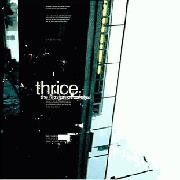 | Thrice
The Illusion of Safety
The transition between Identity Crisis and The Illusion Of Safety is generally regarded as the stuff of legend. Here were a band, who initially, didn't really stick out a great deal from their peers, sufficiently plodding along enough to garner a fan base but not really doing a great deal to stick out from the pack. Of course, that would all change. To see the increased ferocity and passion executed so perfectly after their slight fumbling of the two on their debut is more than just a little awe inspiring. While not the album's crux the improved-beyond-belief guitar work on Illusion is the first immediate standout, as the addictive and whirlwind like riffs spread through the album like wildfire. The album careens through 13 tracks at breakneck speed, the reprieves are few and far between, and the energy that binds this album pierces through with an overwhelming youthful exuberance. Sure, the album's a little underdeveloped given what was still to come from these post hardcore juggernauts but I dare you to find fault within an album that asks for nothing more than forty or so minutes, and yet offers so much in return. At times it blurs the line between more harsher fare and something akin to sing along melodies, but it's done so simply and effortlessly and with so much love for nothing other than the appreciation of music that you just can't knock it with anything resembling displeasure. While the melodic nature of the band isn't quite as reinforced and as ingrained as it would be in a few years time, here it's a little more raw, a little more unbridled. And the album, as a whole, is a lot better of for it. -- Deviant | | 95 | 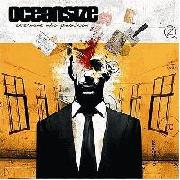 | Oceansize
Everyone Into Position
'The Charm Offensive' is a blinder of an opening, it really needs to be said. While being a track firmly grateful to the band's past it exposed their ambition and maturity that would prevail through out their career all the way to the present day. It's the perfect summary for Everyone Into Position, the ultimate manifesto for the album's intentions and demands. Displaying an impressive amount of confidence for their second round, Oceansize traveled the violent ('No Tomorrow'), stopped for a breather with post rock mimicry ('Music For A Nurse') before applying the brakes with the album's ambient drop-off point ('Mine Host'), and did it all with an expert touch in stark contrast to their years active as a band. Everyone Into Position is more than just a collection of songs, its a perfect pairing of several styles meshed together in perfect connectivity, specifically designed with one whole listen in mind, than sparse listens to select tracks. It built on everything only briefly alluded to on their debut, and those small nostalgic reflections have all been increased exponentially, with not only a great deal of spontaneity thrown into the mix that's obviously come as a result of becoming increasingly comfortable as a band, but also a great deal of expansion was added to the equation. The very idea of what the band seemed capable of doing had essentially been obliterated with Everyone Into Position, their sophomore return to the fold revealed a new band entirely, capable of assuming almost any identity and comfortable in all of them. -- Deviant | | 94 |  | The Avalanches
Since I Left You
In three years The Avalanches did what nobody before them could ever do: they actually got Madonna to allow them to sample one of her songs, "Holiday". Oh, right - and they also made a decade-defining concise-whatchamacallit album out of 3,500 vinyl samples, give or take a few. Honestly, it's really hard to define Since I Left You as nobody before or since has made anything like it, much less have it work as well as it does. It's a dance record, an electronic record ? hell, even a comedy record that cruxes on the repetition of various vocal cuts, not all of which are human, and a wide assortment of instrumental pieces that range from ages-old R&B to Enoch Light's choir-organ work, with pretty much everything that's between, amongst, and surrounding the two. It's really little wonder that Since I Left You had an easy time of cementing itself onto many-a-decade list upon its 2000 release, even ten years before they were to be written up. It's just that kind of album: concise, innovative, and despite a good portion of its material being decades old, refreshingly original. -- Jared Ponton | | 93 | 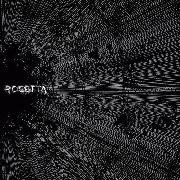 | Rosetta
The Galilean Satellites
The Galilean Satellites'gimmick is its ticket to fame and infamy. Initially designed as a two-disc release, this two-hour post-metal experience was meant to be heard in just one cycle of the clock, a sixty-minute lyrical journey for one astronaut into space to arrive at his devoid-of-human-contact isolation, the moon of Europa. The syncing of the discs idea is admittedly a trick first used by bands such as Neurosis and Tribes of Neurot. However, what makes Rosetta's Satellites shine above those other offerings is found in the perfection of its atmosphere, shoegaze-like guitar effects, and the sublime pairing of Michael Armine's tortured-in-hell vocal delivery with J. Matthew Weed's relentless guitar distortion. Though Satellites admittedly owes all of its elements to Rosetta's forbearers - namely Neurosis, Isis, and Cult of Luna ? the album puts the best of post-metal on display in a single one-hour "metal-for-astronauts" journey. Satellites is an experience that fans of the genre cannot go without hearing, even those that are put off by the amount of borrowing Rosetta had to do to create it. -- Jared Ponton | | 92 | 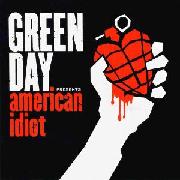 | Green Day
American Idiot
Green Day's rock opera makes it in as our 92nd favourite album of the decade, but one of the most exciting things about American Idiot is that it would almost certainly find a place on our most hated albums of the decade too. This is the endearing effect of one of the most gigantic pop culture phenomena of the last ten years: polarisation. A pop-punk outfit that used to sing about masturbation turned their ambition up twenty or thirty notches and constructed a concept album packed full of radio hits, political anthems and images of a burning country, and in turn it shifted the mainstream towards rock for almost an entire year. It divided opinion, inspiring some to sing, others to dance, and its detractors to riot. Hats off to Green Day; being this relevant is not as straightforward as they'll have you believe. -- Adam Knott | | 91 | 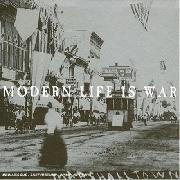 | Modern Life Is War
Witness
Impassioned and fervent for its entire length, Modern Life is War's second LP Witness is a landmark in hardcore music ? while it does not necessarily reach the lyrical and contextual depths of various other hardcore bands, the very ardent naivet? of the band comes to lifeand draws you into their rough-around-the-edges form of melodic hardcore. Tracks like 'Marshalltown' move at languorous tempos which is in sharp contrast to the fury and anger expressed in 'D.E.A.D.R.A.M.O.N.E.S' , the track that immediately succeeds it. Perhaps one of Witness's most advantageous characteristics is its almost instantaneous appeal. Fans of hardcore music will undoubtedly fall into its wake without any hesitation, but the relative accessibility of the record leaves it as not only one of the best hardcore albums released this decade, but one of the best to have broadened the genre. So if you haven't yet heard Witness, what the fuck are you going to do, kid? -- Berkay | | 90 | 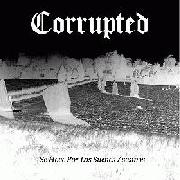 | Corrupted
Se Hace Por Los Suenos Asesinos
A lot of reviews start by stating how difficult it is to write about one of your favourite bands, and this blurb is no different. What's even worse is that this is not the first blurb I've had to write for this album's appearance on a decade list, and so it seems I'm fresh out of ideas. However, writing about Corrupted is always rather simple because the band speaks for itself. Se Hace Por Los Suenos Asesinos is Corrupted's third LP, a culmination of nearly a decade of splits and EPs and the record which anticipates what is heralded by some as their master work, El Mundo Frio. What differentiates Se Hace... from its succeeding LP is rather distinct ? while El Mundo Frio combines the oppressive nature of debut Paso Inferior with the progressivism of Llenandose de Gusanos, Se Hace... harkens back to Corrupted's earliest days with two of its most destructive sludge tracks. The record is divided stylistically into two halves (though over three tracks), with the opener being a brooding 17 minute acoustic track which juxtaposes and thus accentuates the crushing nature of the two shorter songs that follow it. 'Gekkou No Daichi' is, as opposed to being sung in Spanish like most other Corrupted songs, entirely in the band's native Japanese, and its seemingly unending nature lulls the listener into a stupor before being jerked back into the record with the squeal of feedback that opens 'Rato Triste'. It's a very straightforward contrast, but Corrupted do it with a level of sophistication that is apparent in all of their material. Se Hace... is as significant to the band's discography as it is to the genre, and its distinctly separated halves are perhaps easier digested than El Mundo Frio's whole. It's one of the few albums of its kind that leaves a lasting impression on the listener while still retaining longevity, essentially a testament to the band's musicianship, and, if anything, the fact that an underground sludge release such as this was able to scrape its way into a more general list such as this one is a testament to the record's impact. If you've not yet been Corrupted, now is your chance. -- Berkay | | 89 | 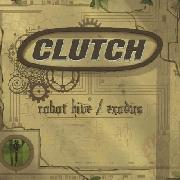 | Clutch
Robot Hive/Exodus
You might hate the concept of jacked-up trucks and excessively manly beards. You might not have an appreciation for the type of rock that melts your face with an unrelenting onslaught of thundering grooves, crushing riffs, and tough-guy vocals. These personal stances can mean a plethora of things, but an unequivocal fact is it means you have never listened to Clutch. Clutch is the type of band that slides just under the mainstream spotlight yet enjoys a ravenous, excessively loyal fan base that kneel at the rawk-fueled altar of their idols. Aside from their consistently flawless execution and musicianship, the primary reason for this adulation is that Clutch can pull almost anything off, be it stoner meandering, power blues, or good old face-caving rock. Robot Hive/Exodus is the culmination of their genre experimentation, the pinnacle of their wit, the most successfully ambitious project Clutch has and probably ever will grace us with. "The Incomparable Mr. Flannery" will make you want to steal a Camaro and raise a middle finger to anything that doesn't involve the immediate sensation of rocking the fuck out. When "Mice and Gods" and its massive, life-altering chorus is through with its thorough pummeling of your senses you are almost afraid to ask for more but incapable of resisting. Album standout "Burning Beard" has a hammering groove so massive and manly you could literally be on fire and not notice due to an incomparable spike of surging adrenaline. Whatever your poison is, Clutch can and will deliver the antidote. Along with seminal classic Blast Tyrant, Robot Hive/Exodus is the proper starting point to unearthing the might and magic of one of rock's greatest bands. -- BigHans | | 88 | 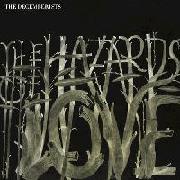 | The Decemberists
The Hazards of Love
The word "ambitious" has always found a home in Colin Meloy's vocabulary (along with all of its synonyms). From the 18 minute prog-fest The Tain to the multi-part suite and general grandiosity of (*ahem*thesuperior*ahem*) The Crane Wife; Meloy clearly doesn't shy away from bombast. The Hazards of Love, then, is the natural progression (pardon the pun) in any aspiring master of 70's prog: a concept album. Based upon some entirely retarded story that's nothing more than a low-grade Shakespeare rip-off (no, not Marlowe), involving a rake, some whiny bitch, his lover and a queen; The Hazards of Love takes everything that makes The Decemberists the loveable indie troupe they are, and Rushifies them. The album should come across as a disaster, and in part it does with its repetitive second half and lengthy runtime, but goddamn it's a fun disaster. If only for "The Wanting Comes In Waves/Repaid" or the absolutely mean "The Rake's Song", The Hazards of Love deserves a place on this list. There are enough memorable parts here to satisfy many a fan across any genre with its kitchen sink orchestration, stoner rock riffs and signature wordplay from Meloy. It's just ridiculous enough to be awesome. -- Keelan H. | | 87 |  | Arcade Fire
Neon Bible
I guess the best way to survive second-album syndrome is by not releasing a third, and with art-rock nerds now going back and forth for urgent plays of The Suburbs, it's about time Neon Bible got some reflection of its own. And where to begin? It's huge, and in so many ways. Musically, it's bigger than the box it's been put into, cluttered with horror-flicks such as "Intervention" and the anthemic, run-away rock operas a la "No Cars Go." We've got flutes, church organs, accordions and thunder effects, and we're a little cramped in here. But in a sense, isn't that the point? Lyrically, this album is nothing like its personal and loose predecessor because its themes are so external: Butler and his band create what could be their angriest work ever, with universal social statements made across the board, such as TV-preachers who ride off the coattails of religions more grandiose than they could ever be ("So tell me lord / am I the antichrist?") and the religions themselves. Butler spoke of a certain 'lack of control' society has and while the anger he shows in Neon Bible is bubbling on the surface, he remains more a spokesman than an activist. With so much to talk about, and so little time to get it said, Neon Bible is monolithic. And that, my friends, is why you will remember it. -- Robin Smith | | 86 | 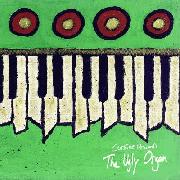 | Cursive
The Ugly Organ
"Who's Tim's latest whore?" asks the now non-fictional, er, Tim, and if being planted in this story of anti-fairytale and Pinocchio has one devastating result, it's to give Cursive's storyteller a face. On "Art Is Hard," Kasher refutes evil critical overlords, but never mind art being hard ? even though the post-hardcore of the guitar-driven Domestica has been abandoned, Kasher's art is still ugly, the work of a passive-aggressive brute who recognises everything violent about himself. Even without the punk, the cellos and violins - when present for storytelling on "Driftwood" or "Butcher The Song" - still sound sharp and harsh, and this Indie record uses layers only so there's more to bite down on. On "Butcher The Song", he laments, "I'm writing songs to entertain / but these people, they just want pain" and in a sense the entirety of his second record battles this contradiction of pain and pleasure. These tracks are infuriatingly catchy but if it's pop, it's sadism too. Kasher suffers for his art, but in the midst of it makes an accidental classic of his decade. -- Robin Smith | | 85 | 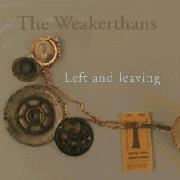 | The Weakerthans
Left and Leaving
The thing I love about Cormac McCarthy's writing is his uncanny ability to use diction, nay, even the very syntax, of his lyrical prose to paint landscapes that are really there to paint characters. The Road? Bleak; full stops. Blood Meridian? Ethereal, psychological blood bath; inversion of expected syntax. In a way John K. Sampson employs similar tactics to transform simple, borderline cliche sentiments into something totally refreshing. When Sampson sings, "the airport's always almost empty this time of the year / so let's go play on a baggage carousel" the listener is not just given the sentiment of innocent love, but of time and place, and y'know, reality. That's the funny thing about Left and Leaving, The Weakerthan's second album; it defines itself mainly by what it has to say. Sure the music is good in itself, the slide guitar comes in perfectly on "My Favourite Chords", the distortion fueled climax of "Exiles Among You"; but it's those damn words. This isn't an album about your favourite chords, it's one about "faulty strings of blue christmas lights", "cities still breathing / but barely it's true", "neon lights and slinking purple skies", and most importantly, "amateur cartography"; it's all in the words. -- Keelan H. | | 84 |  | The Ocean
Precambrian
So once you absorb The Ocean's 80-minute-plus Precambrian, you have the pleasure of sorting out its various literary references, revelling in its back story, and examining and marvelling at the implementation of its ambitious concept. The implementation part is of particular interest when accessing this daunting piece of post-metal because, like much of Godspeed's work, this German outfit actually made pretension look unpretentious; or, at least, did it well enough to where you're not cringing every minute of Precambrian's playing time. The concept spans the early formation of the Earth over two discs - one Hadean/Archaean, think sludge gone metalcore, and another Proterozoic, a journey into everything that anyone has ever, or has never, tried to make work in a post-metal setting: piano, strings, brass, clean vocals, and of course, distortion, drums, and harsh growls. Chock Precambrian up for a big win for concept albums in general, and, oh yeah, for a post-metal experience of the decade that you won't want to miss. -- Jared Ponton | | 83 | 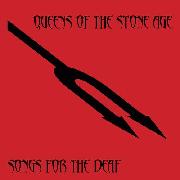 | Queens of the Stone Age
Songs for the Deaf
While many an individual may look at Rated R or '98's self titled effort, it was 2002's Songs For The Deaf that truly heralded Queens Of The Stone Age's arrival into hard rock celebrity. Cementing them as a contemporary rock act to be feared, it also managed to usher in a new sense of accessibility for the group, thanks largely in part to the appearance of one Dave Grohl; who while anchoring the group with tricky and claustrophobic beats, managed to counteract the crazed streak of the band with his appearance in the video for crossover hit 'No One Knows' balancing out the apparent weirdness of "that little bald guy" and "the giant redheaded dude". And while 'No One Knows' with its pissed off ZZ Top vibe remains as perhaps the groups most commerically succesful track, Songs For The Deaf remains the home of QOTSA's most head shaking numbers. Tracks like 'Millionaire' and 'First It Giveth' embody the greatest strengths of hard rock efortlessly, alternating between breakneck speeds and crushing riffs, changing on a dime from overdrive to burnout. It still veers on pop attention though; even on the darker, more evil sections of the album Homme and Olveri can't help but hit the pleasingly right notes, even when the wrong notes would have worked so much better. The album is a true shit?kicker though, left out to dry and decay in the dust and the sun, yet still sporting a toothless grin. And baby, this album kicks as much as it drives. -- Deviant | | 82 |  | Brand New
Deja Entendu
It's not that Brand New's Deja Entendu is unashamed of the melodrama it communicates, but simply that it's unaware, in the best way possible. See, Deja resonated and resonates with a generation on so many levels because it suffers all the same flaws as its audience; excess, confusion and self-loathing. It's the soundtrack to messy teenage years where angst and desperate poetry take control of your emotions and alcohol fuels half your actions; it's about not knowing where you are but trying to read the signposts even though they're moving too fast. The dark, cutting, passionate take that Deja offered on pop-punk was the sound of everything from Your Favorite Weapon going way too far. Occasionally delicate, at other times reckless, Deja was and is a masterpiece; if you've ever grown up, you already know what this album sounds like - but it never hurts to be reminded. Wait, wait, yes it does. It really does. -- Adam Knott | | 81 | 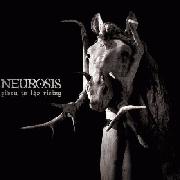 | Neurosis
Given to the Rising
Before post-metal, there was Neurosis. Long after post-metal, there will still be Neurosis. It's hard to pin an entire genre on a single band, but when considering Neurosis there is no doubting their enormous significance when it comes to 'atmospheric' sludge metal, or 'post-metal' as it is better known. Coming from a hardcore punk base in the late 80s and arriving at where they are now, the casual fan will have a difficult time even attempting to absorb the extent of Neurosis' discography. They have a vast amount of albums, with each being an absorbing record that requires patience to properly grasp. What is even more notable is that despite being around for so long and being so pivotal to one particular style of music, Neurosis seem incapable of making bad music. Souls at Zero, Times of Grace, The Eye of Every Storm ? all groundbreaking releases. Given to the Rising, released almost 4 years ago and just under 20 years after Neurosis released their debut LP, is just as engaging as any of their other albums. Having toyed with more ambient and atmospheric elements in their previous effort, 2004's The Eye of Every Storm, the Californian group hit back hard with Given to the Rising. The record is a jumble of tempos and moods, beginning with forceful riffage and then shifting from soft lulls back to explosive and bombastic rhythms. The various aspects that constitute the 'sound' of the record seem to be perfectly in sync ? the rough and gravelly vocals, the menacing guitar tone and the stimulating rhythm section all work together, not to mention the various other sound effects and ambient pieces that are incorporated into the music. Neurosis stand as the band to front post-metal as a genre ? it has always been like this and it will always will. Given to the Rising is just another slab of evidence in support of this idea. There really isn't any need to elaborate on how the record is relevant to the past decade or to its genre; the only important thing is how the record sits among Neurosis' other work, and it can be safely said that there seems to be no stopping the almighty force that is Neurosis. -- Berkay | | 80 |  | Protest the Hero
Fortress
There really isn't a great deal that one can say about Fortress (and Protest The Hero as a whole) that hasn't been argued about, disputed and fought over already, except to point out the obvious that, above all else, Fortress is a damn fun album. All pretense and inflammatory comments regarding the actual artistic worth of a Protest The Hero album aside, the band are well versed in crafting exciting, if a tad excessive, songs. I mean, we didn't exactly come here for subtlety now did we? Moving forward from the bright ideas but occasional misfires of their debut Kezia, the boys have upped the ante in every regard, moving from halfway up the ladder to complete over the top hysterics. Fusing ambitious lyrical constructs with technical wizardy (that belies the collective age of the group) with determined and motivated song writing, it resulted in a breathtaking collective that ultimately saw the group taking giant steps forward with their evolution, more risks taken that were rewarded in a far greater pay off at the end of it all. Sure the album is not without its flaws, but they are few and far between, and who really cares when you (as I'm sure the band were as well) are having this much fun. -- Deviant | | 79 | 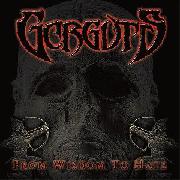 | Gorguts
From Wisdom to Hate
If you're familiar with the extent of Gorguts' discography then you will undoubtedly be aware of how distinct each release is from one another - from the bludgeoning 'old-school' style of Considered Dead, to the streamlining of the debut as can be heard in The Erosion of Sanity, and of course the complex and frenetic later work of Obscura and From Wisdom to Hate, each recoclrd is markedly different yet displays inherent 'Gorguts' qualities. Much like how an art critic can recognise the work of Rembrandt purely on the style of his paintings, Gorguts paint an immaculate picture with their unique brand of death metal, and have done so since the early 90s. From Wisdom to Hate, in my opinion and of course the opinion of this poll, is the seminal Gorguts release - while all of their material is invariably good, From Wisdom to Hate represents a culmination of all they had been working towards in terms of style and composition over the course of their existence. While retaining the raw and aggressive vibe of earlier work, From Wisdom to Hate takes the unusual and intricate design of Obscura and ultimately perfects it, balancing both progressive and unadulterated death metal sensibilities. Its 8 songs comprise of well arranged yet not overbearingly technical composition, with riffs that both transcend the genre and firmly engage it. Gorguts are inarguably one of the greatest death metal groups to have been put to record, and as much as each of their releases is evidence of this, From Wisdom to Hate cements their reputation even further as both innovator and leader of the genre. -- Berkay | | 78 |  | Karnivool
Sound Awake
With Themata, we saw Karnivool craft a compelling collection of tracks; accessible and poignant, but lacking that cohesive direction that would have pushed the record to an astronomical level. Karnivool's 2009 installment Sound Awake is an evolution of the debut; a full-blown progressive record that does not sacrifice even the smallest quantity of emotion in its technicality. Ian Kenny's soaring vocals meld so intricately with the crushing riffs and abrasive bass in such a way that it is difficult not to admire Sound Awake. Karnivool's sophomore release is a locomotive in that it is powerful and never seems to lose momentum, therefore solidifying its place as one of the decade's supreme records. With all that said, Karnivool's magnum opus is still to come, which speaks volumes of the group's potential. -- Evedder | | 77 |  | Coldplay
Viva La Vida
Ah, yes, the ubiquitous Viva La Vida or Death and All His Friends - the album that took a sappy balladry band that you and your mom liked and turned them into an innovative sappy balladry band that you, your mom and the hip, plaid-clad chaps down the block liked. "Viva la vida", as a catchphrase en espa?ol, translates easily and obviously into the commandment "live the life" - and when tossing Coldplay's fourth album into the context of their discography, it's not difficult to see why this is an appropriate title. Whereas Coldplay had settled into a comfortable pattern of writing their first hit 'Yellow' over and over again for three albums straight, Viva La Vida marks the time in which a firework went off in Chris Martin's head and he decided to become brilliant. Need evidence? Listen to the sequence of 'Life in Technicolor' and 'Cemeteries of London' and tell me that the instrumentals of the former and the acoustic gallop of the latter don't completely eclipse songs like 'Speed of Sound' or 'In My Place'. Eclectic instrumentation is peppered about liberally on songs like 'Yes', 'Viva La Vida' and 'Lost!', where Martin's piano and falsetto take the backseat to triumphant string sections, infectious beats and suitably obnoxious organs. Lest we forget, even the more "normal" compositions (in production terms, that is) on Viva La Vida stand their ground - '42' is the best song Radiohead still hasn't written and 'Death and All His Friends' is the tangible form of Coldplay finally writing the song 'Fix You' tried to be two years before. So, is Viva La Vida the sound of Coldplay "living the life", as they'd say? Unquestionably. Viva La Vida is Coldplay waking up from the lull of X&Y and proving to the music world that they deserve to be associated with the country that brought us Thom Yorke and Robin Smith.
?and Cadbury chocolate, I guess. -- Caleb McAlpine | | 76 |  | Poison the Well
You Come Before You
Despite the fact that Poison The Well were able to craft one of the most astoundingly brutal and sincere metal albums with their debut The Opposite Of December, they've never been an outfit satisfied with the trappings of their apparent genre placement. Never one to mix words, Moreira and his merry band of spurned lovers broke out, so to speak, with their third full length, You Come Before You. Breathless by nature yet inflammatory with its emotion, the album was a heart attack of visceral imagery and blitzkrieg like destruction. Whether it went for the jugular with tracks like 'Ghostchant', 'The View From Here....' or album closer and heart stopper 'Crystal Lake', or paused for reflection with psychedelic landscapes chopped up over garrote like vocals in 'Apathy Is A Cold Body', it was an album that never let up, unflinching and unwavering. In fact, almost the entirety of the second half of this album became something of a battle between melody and metalcore, both scrambling for purchase in the maelstrom. Here was a band that had hinted at a transformation now fully inhabiting a new entity, sacrificing pummel for persuasion but losing none of its insistence. And while Moreira might have talked about holding knives behind your back, here was an album that exposed them to the world, confident and in full view and left nothing to the imagination. Refreshingly new, yet still on familiar ground for long term fans, You Come Before You defies expectations of what metalcore should sound like. Artistic expression vs. big label backing meant what for Poison The Well? You'll see what you'll want to see. -- Deviant | | 75 | 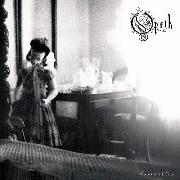 | Opeth
Damnation
Damnation is a quiet beast, an album that is restrained and refined in terms of both its songwriting and musicianship. The humble voice of Mikael ?kerfeldt doesn't stray from a soft and welcoming progressive rock rendition that brings to mind the subtle beauty that has been displayed in the past, but appear here ten times amplified in scale. It's the blissful acoustics and the rhythmic plucking of the bass that paint a picture of despair and loss- an atmosphere that has already been explored by Opeth, but one that seems more real on Damnation. Even when the album does stray from the crawling pace that comprises its majority, everything appears locked in restraint. Through a unwavering focus on the benign and peaceful, Damnation proves to be a resounding success for Opeth, showing their ability to develop a concept with startling clarity and meticulous purity. -- Kyle Ward | | 74 |  | Edge of Sanity
Crimson II
The first Crimson is arguably my favorite death metal album at times, and this one is a more than worthy sequel. Dan Swano, after completely taking back control of his most interesting project, introduces more melody and keyboards than on the previous record, while never forsaking the original sounds and riffs that made Crimson such a special and memorable 90s metal album. Hell, you'll even get a few riffs from Crimson on here too. -- Kit Brown | | 73 |  | Boards of Canada
Geogaddi
So we may not have all approved of Mike Sandison and Marcus Eoin's choice in 2002 to scare the living hell out of our children once they had properly taken ownership of them, and neither did we particularly go for the duo's unannounced treks into and out of hiding as artists - but we certainly do now. Why? Because we now know that Geogaddi is an IDM puzzler that thrives off both its creators' mysteriousness and the underlying themes and Easter eggs to be discovered in its contents: it really took time for listeners to wrap their minds around this release. Satan found a new home ? the 66:06 length, the haunting "The Devil is in the Details," a hidden six-sided polygon (666) to be found in the cover art, etc. ? cult references were given a playground to shift and expand with the duo's electronics ("1969" and "Sunshine Recorder"); and German philosophies, paralleling the views held by Sandison and Eoin themselves, were engrafted into Geogaddi's atmosphere:"The past inside the present" - I'll let you research that one yourselves. 23 tracks and an IDM album unlike any other, Geogaddi is truly more than meets the ear, brilliant in its intertwining of themes and concepts, and an experience as engrossing as it is eerie. -- Jared Ponton | | 72 | 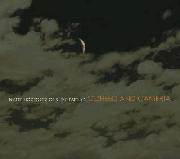 | Coheed and Cambria
In Keeping Secrets of Silent Earth: 3
From the opening moments of the eight-minute title track, it's clear that Coheed & Cambria sufficiently matured in the 20-month (!) time period between the release of their debut and In Keeping Secrets? Claudio Sanchez's voice is stronger, the riffs are more fully formed, and the band feels tighter than they did throughout nearly all of The Second Stage Turbine Blade. The band's prog-quirkiness is still present, but it's complemented by an epic, metallic side that had previously only just begun to rear its head?check the three-part mid-album saga or the second half of "21:13" that hints at things to come. Adding to Coheed's variety is the addition of a few poppier cuts that did well to thrust them further into the public eye. From the psychotic happiness of "Three Evils" to the hypnotic closer, In Keeping Secrets? is a perfect snapshot of a band musically stepping into the prime of the careers. -- Romulus | | 71 | 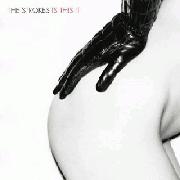 | The Strokes
Is This It
I don't get it. Julian Casablancas comes across as the kind of guy you'd be intimidated by as you exchanged pleasantries with a crowd of formal go-getters far more suitable for wearing suits than you and even more suitable for sitting at tables with three sets of forks. And yet he got Is This It recorded with a very different set-up, or downstairs; a smoky basement with four other underachiever New Yorkers who knew a few chords and a good time. Regardless of its unassuming production values, The Strokes' debut is a groovy take on post-punk and, in that sense, an excellent tribute to garage-punk, taking on anything from The Velvet Underground to Television (don't argue) with two fiery guitarists that do all the speaking except for the metropolitan sleaze Casablancas deals in lyrics. And Is This It doesn't insist upon itself. We're left with eleven bubbly pop hits that bounce off each other but never do it any different: "Hard To Explain" is structurally identical to "The Modern Age" and "Last Nite" and "Soma," but I couldn't have one over the other. Oh, and Americans miss out on "New York City Cops", of course, the most explosive track of the early Strokes' days, and with none of that restraint nonsense. What's in formalities? -- Robin Smith | | 70 |  | Pg. 99
document #8
While d0cument #8 is often revered chiefly for its prominence in screamo and the aura surrounding Pg. 99 and their anonymity, it's impossible to discredit the pithy and powerful piece of its well-deserved lofty exclaims. Even without the title of screamo-nobility, essential listening for any angst-ridden punk,d0cument #8 is still a behemoth of a record, virtually uncontested in my mind as the prime cut of the decade. The now-illustrious band sent a massive tidal wave through the scene. Yet, instead of approaching d0cument #8 from the manner in which it so fervently changed the future of screamo, I've always found it much more powerful taken from a simpler approach. Eight songs of unbridled ferocity and attitude have never felt so genuine. From the opening muffled monologue, d0cument #8 has always been and will always remain the epitome of punk to me. Rough, coarse, and stark, Pg. 99 essentially accomplish what most all of their predecessors set out to do- blend chaos and beauty. From the guttural energy of "The Hollowed Out Chest Of A Dead Horse," to the brazenness of "Your Face Is A Rape Scene," Pg. 99 utilizes every single moment of d0cument #8 to make a fucking statement. There's nothing timid or even subtle about the record. No, Pg. 99 want to be sure they're heard loud and clear, frill-less and blatant. You have to get the butcher at the butcher shop. You have to get the local army recruiting officer. You have to let them know that you think they are shit, begins "Punk Rock In The Wrong Hands." Pg. 99 makes everything explicit, and while the message on d0cument #8 can be a little overwhelming at times, it's pretty clear this was a goal of the band... and damn do they succeed with style. -- Eric | | 69 | 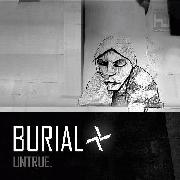 | Burial
Untrue
With the exception of maybe Mono/World's End Girlfriend's Palmless Prayer/Mass Murder Refrain or Stars of the Lid's And Their Refinement of the Decline, I can think of no better album than Burial's Untrue in its ability to manipulate mood and atmosphere without coming off as forced. When Burial presents loneliness as the central theme, there is a constant danger of veering into melodrama; but when warbled voices sing "I can't take my eyes off you" on "Near Dark", the listener doesn't see a creepy stalker vision, but rather a lonely figure introspectively yearning to break from isolation. From this yearning Burial crafts a breathtaking array of hauntingly beautiful takes. "Archangel" is the most immediate example, but it's "In McDonalds" that defines the album's mood. The short ambient track manages to garner the sweeping beauty of the pastoral and manipulate it to enhance the brooding loneliness of the urban jungle. This is why in an increasingly crowded genre like dubstep, Untrue remains at the top of the class. -- Keelan H. | | 68 |  | As Cities Burn
Come Now Sleep
Somehow, somewhere, some time ago, the religious and the uptight silently agreed with one another and congregated together pharisaically in stereotypical manner to draw a line. A big line - a big fat, fucking line that made an obvious and painfully distinct barrier between the religious despots and the spiritual meanderers who actually had questions floating around in their inquisitive little noggins. And this is how half of us ended up: ostracized for having normal, human doubts in a deity that nobody has tangibly experienced. After all, don't even the true believers ask "why?" sometimes? These are the struggles vocalist Cody Bonnette wrestles with when he sings "God must be asleep" on Come Now Sleep's opener 'Contact'. These are the matters Bonnette sings of when he's asking "Heaven, why do you have doors to close?" and stating that "our God isn't really God if He fits inside our heads." What's happening? Does he not profess Christian faith, is he simply stirring up controversy for attention? No and no, Come Now Sleep is as beautiful of an album as it is through honesty and honesty alone. This is a man with doubts and insecurities who simply isn't afraid to share it with anybody willing to listen. And while the ambient, textured instrumentals and noodly guitar lines that accompany Bonnette's impassioned vocals are a welcome attribute to Come Now Sleep's success, it's the vulnerability and lyrical integrity that make the album a harrowing and decidedly spiritual affair. If only everybody else would bother taking off their masks off for a second, it's possible the Christian music scene wouldn't leave us all with such a stale, sugary taste in our mouths. -- Caleb McAlpine | | 67 | 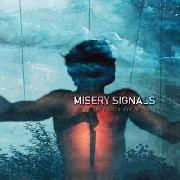 | Misery Signals
Of Malice and the Magnum Heart
Of Malic and the Magnum Heart is not simply just an album; it's an answer. When legendary metalcore band 7 Angels 7 Plagues broke up rather abruptly, the future of not just the potential that the members of the band had, but the future of metalcore in general was called into question. Misery Signals was formed, featuring three members of 7 Angels 7 Plagues, and their debut album is their collective answer to the doubters and naysayers of the genre. Featuring chaotic, noisy and off-timed signatures featured in old school 90s metalcore, coupled with clean passages, melody, harmony and the brutality of today's modern scene, all joined together by the heart wrenching and emotionally powerful lyrics of then vocalist Jesse Zaraska, makes Of Malice and the Magnum Heart one of, if not the best modern metalcore album since the turn of this century. -- This Life Is Genocide | | 66 |  | La Dispute
Somewhere at the Bottom of the River...
It worries me a little that people take La Dispute too seriously sometimes. Don't get me wrong- the Michiganians famed post-hardcore LP certainly harbors angst, anger, and all those oh-so-poignant emotions that accompany heart-wrenching breakups. On the other hand though, I can't help but love Somewhere At the Bottom Of the River... for what seems to be an entirely different reason than the one you presumably voted it the 66th best album of the decade. Sometimes I want to hear the agony and suffering of Jordan's Dreyer's screaming. I even listen diligently from time to time to hear the deep, metaphorical lines of a relationship that went up in flames. Maybe it's because my disposition is too upbeat and optimistic, but I can't help but sing along to "Bury Your Flame" every time it comes on with almost inexplicable jubilation- "An unshakable absence / Like most of my insides crawled out of my mouth and went west!" See, where others are bent on detecting torment, it sounds more like some goddam beautiful dynamism, to me. It's so easy to lose myself in the maze-like forest of refreshingly experimental arrangements and off-kilter rhythms. The unadulterated passion is great, of course, but for those of us that haven't had the post-breakup, lovelorn desire to burn our exes at the stake, there's still plenty to love on Somewhere At the Bottom Of the River... -- Eric | | 65 | 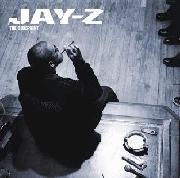 | Jay-Z
The Blueprint
I understand Jay-Z loves the album suite and I'm all for the compartmentalizing of multiple albums with similar artistic aesthetics (think about it) under a conveniently unified title scheme. But if you line up the track-lists for the three Blueprint albums side by side, one glaring mismatch is apparent--the original Blueprint is a very lonely record. If not for a brilliant guest verse from a then vicious Eminem, the record is almost exclusively Jay. In the hands of a less capable artist this would read like a shitstorm of artistic and commercial improbability but for Jay was a stepping stone into super-stardom. Free-flowing, soulful beats courtesy of Kanye West, Timbaland, Bink and Just Blaze provided Hova with just the right amount of banging bass and delectable soul samples to fit perfectly with his brilliantly paced delivery.
Furthermore it's not like this was Mr. Carter's first album, he was five full lengths deep at the time and realistically was still making continuous bank. So why the desolation? Why not chirp all your musically inclined buddies? Well if you were simply trying to make hits maybe but Jay had more in his sights ("I'm rapin Def Jam 'til I'm the hundred million man") Beyond the album's collection of future go-to producers for the next decade, The Blueprint was an enigma. Outside of its singles ("Izzo," "Girls, Girls, Girls," "Song Cry" please you know them) which were pretty ballsy choices considering how progressively soulful they were; the album is basically a victory lap. But in retrospect The Blueprint was more than a mere album--it was an event. A record that prompted midnight drops and long lines on release day and eventually legitimized Jay's ability to debut each subsequent record as lavishly as The Blueprint. Ever question why he's allowed to do this? Why we put up with that level of ego-centric, self-serving grandiosity? This album. That's why. -- AggravatedYeti | | 64 | 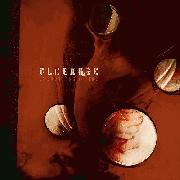 | Ulcerate
Everything is Fire
While Ulcerate claim on their sophomore record that everything is fire, this is a bit of an understatement ? the intensity here is more than just fire, it is wholly devastating. This band of kiwis have listened to their fair share of Immolation and Gorguts, and while it has been criticised that they may wear their influences a little too openly on their sleeves, their mixture of the aforementioned bands' styles into a far more technical and complex template is exemplary. Everything is Fire is one of the most intense death metal records one can experience ? like anything of this complexity, it wallows in a multitude of layers, making it one of the more difficult records to properly appreciate. Of course it may take your average Sputniker only one listen to consider this a 4.5/5, but that's beside the point - Ulcerate have crafted something of an anomaly in what is generally a stale form of death metal, a vibrant and hugely technical death metal album that appeals to veteran listeners and newcomers alike. -- Berkay | | 63 |  | Sigur Ros
Takk...
When considering the band's discography, 2005's Takk represents everything that is the Icelandic post-rock phenomenon, Sigur Ros. The band uses a foundation of feedback, chime, and Jonsi's characteristic high-pitch wale to crux the album, not so unlike Untitled that came three years before it. Sigur Ros then take a cue from 1999's ?g?tis Byrjun and mold their expanses and drones into collective songs seemingly only pointed upward; these Icelandic hymns most often begin with an idea that further builds, climaxes, and easily transitions into the next cut. Even a foreshadowing of the group's more pop and conversely more exuberant direction to be found on 2008's Me? su? ? eyrum vi? spilum endalaust finds its origins in Takk. It's practically the band's best-of album that came halfway into a decade in which Sigur Ros were considered to be one of its premier groups. Like the rest of the band's discography, the album is nothing short of stellar, this time giving you the best of everything that Sigur Ros have presently ever offered, in one complete package. -- Jared Ponton | | 62 | 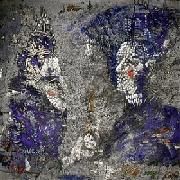 | mewithoutYou
Catch For Us The Foxes
Telling you guys what's so great about a mewithoutYou record is about as enlightening as Richard Dawkins is for Aaron Weiss, but I guess Catch For Us The Foxes could make its mark as the most unexpected of the band's records to make its way onto this list. It's certainly the most humble of their canon, having a curfew on the demanding punk of A-B: Life but all in all acting as a stepping stone to their gorgeously naturalistic future. It certainly feels like a half measure, but by merging both sounds into something more streamlined we have a record of lyrical exploration as unique as its three siblings. Rock songs on the record are straightened out and the allusions they carry are at their most digestible: watch for the parallels between the book of Luke and the lyrics of "Torches Together" ("You played the flute / but no one was dancing") and the direct New Testament quotations in "The Soviet" and the album's title. In a sense, what's so important about Catch For Us The Foxes is that it represents one strand of the band's spiritual discovery, and where the time line currently ends (It's All Crazy!) it seems Weiss and co. have universalised the spirituality they've always had since their post-hardcore days. Their story has a sequence, and while its conversion lies far away from this Christian rock record, it is far from meaningless ? oh, and it's catchy as hell, top to bottom. -- Robin Smith | | 61 |  | Protest the Hero
Kezia
Three acts, three points of view, and three songs, which are essentially divided into ten tracks, comprise Protest The Hero's technical and catchy Kezia. The album's impact on its scene was not immediate; for it wasn't until around Kezia's US release in 2006 that writers' pens and keyboards really started creating a fuss for this young and brimming progressive-technical-metalcore-catchy thing of a band ? the members of Protest The Hero were only around the age of 18 when this band-described-"not concept", concept album was put together, and in retrospect, Protest The Hero was easily putting groups that were ten years their senior to shame. Looking at Kezia's ingredients, you would think that it could have easily been a disaster, all but flopping in on itself: The combination of an abundance of technical guitar playing, intense drumming, and the astounding range of vocalist Rody Walker, who spins a tale about a girl named Kezia and her execution, being observed and commented upon by a prison guard, a priest, and Kezia herself? Interesting and ambitious, but mind boggling and fun as well, Protest The Hero's Kezia succeeds in its endeavors, however, leaving listeners with clever and intelligent sets of lyrics, well-played instrumentals, and several infectiously catchy vocal melodies each and every time they return to hear the tale. -- Jared Ponton | | 60 |  | Dream Theater
Train of Thought
It came as something of a surprise when Dream Theater released Train Of Thought in 2003. Here was a band who were increasingly descending into musical masturbation now returning to the concept of writing actual "songs". Sure, the incessant instrument noodling was still apparent, but now here they were paired up with proper song construction and composition, with lyrics now forming the basis of a track as opposed to being tacked on at a later stage. The prog tendencies were still in full effect, but a much needed rock aspect had been injected into the lifeblood of the music, which as a result, produced some of the most memorable licks in DT's (then) 18 year career. Tracks like 'As I Am' and 'Endless Sacrifice' revealed a much needed burst of grit and pummel, both numbers replete with pounding riffs and groove laden anchoring by Mike Portnoy. And yes, five of the tracks easily sail over the 10 minute line, but for a Dream Theater product it was incredibly refined and taut, something sorely lacking from its predecessor, the sprawling and occasionally misfiring Six Degrees Of Inner Turbulence. It proved that, despite all the accusations of wankery, DT did in fact, still have some balls left. -- Deviant | | 59 | 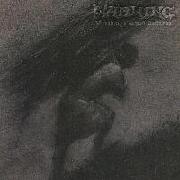 | Warning
Watching From a Distance
With a short career that gave us only two LPs, Warning have amassed a cult following due to this particular record. In essence, this is pure traditional doom metal, nothing more - what propels it to such great heights is the extent of its emotive power. The songs herein are spectacular only for their ability to emote a sense of despair and loneliness that is rare on record ? removing this, and we're left with five simple songs and a rather strange vocalist. But as anyone who has listened to the album will know, this is certainly not the case. No matter where you are or how you're feeling, a simple play of the album will cast shades of melancholy over you. Each song, though being compositionally similar (an unfortunate trait of doom metal), flows seamlessly through moods of grandeur and gloom, and while haters may hate, vocalist Pat Walker adds a unique quality to the record, further exacerbating its introversion. If reviews you've read, this blurb and the album's appearance on this poll is not enough to convince you, I simply propose this ? listen to the closing minutes of 'Footsteps', and then you will understand why Warning deserves all the acclaim it receives. -- Berkay | | 58 |  | The Microphones
The Glow pt.2
The Glow Pt. 2 is an exceedingly difficult piece of music to absorb- proof that the best things in life don't necessarily come easily. The unique, mysterious, and emotion-wrought creation is a musical Frankenstein, an album so complex it takes on a life of its own. Creator Phil Elverum breathes fresh life into every one of the many tracks, creating a sinewy and almost scarily-animated product. Not an album to be absorbed in sips but rather in big, stomach-churning gulps, The Glow Pt. 2 may seem impenetrable at first. Take the time to uncover this dark, thorny gem though, and you come face to face with an undeniably beautiful and personable album.
Amongst the exquisite melodies, the crackly voice of Elverum, and the minimal instrumentation and production, there lies what many believe is The Microphones greatest achievement- the lyrics. There's a level of heavy introspection on The Glow Pt. 2 that wasn't achieved anywhere else in the decade. Elverum seems to undergo an out-of-body experience during each passing song, and this sentiment is reflected aptly during the listening experience. Lyrics that once seemed so poignant and musical moments that once felt so divine pale in comparison after falling in love with The Glow Pt. 2 and its organic, divine power. When it's all said and done, The Microphones masterpiece is a subtle yet obvious powerhouse of the decade. -- Eric | | 57 |  | Mono
Hymn to the Immortal Wind
In terms of perpetuating the detractors of post-rock, nobody does it quite like Mono. I mean, they pretty much just feed into the hands of those nay sayers who exclaim the genre as stagnate and formulaic. For all intents and purposes Mono play to the formula of symphonic, grandiose bombast that slowly builds from an ambient twinkle, to a crashing crescendo. But on Hymn to the Immortal Wind, Mono politely line those detractors up against a wall and blow their fucking heads off with a sonic canon. Make no mistake, Mono have just taken the same sound the've always had and amplified it with an orchestra. And it couldn't have been more effective. When the record is bookended by two of the best post-rock songs recorded in the second half of the decade that isn't by Do Make Say Think, you can easily see the quality of the record. This is the most epic formula since Kirk Douglas' chin dimple slew the Romans. It's called Hymn to the Immortal Wind and that should frankly tell you all you need to know. -- Keelan H. | | 56 | 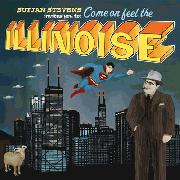 | Sufjan Stevens
Illinois
I adore Illinoise, but my favourite Sufjan Stevens record is Michigan. I won't bore you with why, but I will say this: that record is about his home state, and this one isn't.
So how is it this one is still so damned personal? Does Sufjan really believe himself when he slanders these records marketing gimmicks for the indie simpleton? Has he heard these records? I simply cannot take the fifty states project at face value and laugh along with Sufjan, partly due to the clinginess every fan of his work develops. We rely on these travel-lodge tales, each one crammed with every corner of its subject, be it the city of Chicago or the landmarks of Jacksonville. And most importantly, to us ? Sufjan's obsessed troupe looking for the word ? our very own musician plants himself in each song's forefront. This record isn't just some baroque pop masterpiece for the resurgence of the concept album, it's a postcard from a friend. And a postcard is many things. It's a serious account of your time in a place foreign to you and your recipient ("John Wayne Gacy, Jr"), it's a silly, tickled anecdote ("Come On! Feel The Illinoise!") and it's a sign of friendship, which pretty much runs from "UFO Sighting" to "Out of Egypt." Sufjan Stevens has his generation clutching on to every sound, no matter how trivial. So tell me, how can this be part of some mean marketing gimmick? It's very, very friendly. -- Robin Smith | | 55 |  | Manchester Orchestra
Mean Everything To Nothing
There's a crushing line at the end of 'My Friend Marcus' where Andy Hull proclaims: "it's funny how many don't know, how many of us don't have homes." On a record housing probably the most tender song of the decade in 'I Can Feel A Hot One', it takes something special for a lyric elsewhere to stand out as particularly poignant, but such is the sincerity of Mean Everything To Nothing and the intense connection it's capable of forming if you allow it to. Louder and more explosive than its predecessor, it still lands punch after punch on an emotional level; on the surface it's semi-gritty, semi-anthemic indie-rock, but it has a heart; not a backlit, calculated heart, or even a particularly beautiful one: a real heart, a distinctly human fear and uncertainty of the things that people actually know. -- Adam Knott | | 54 |  | Muse
Origin of Symmetry
When Muse released their debut Showbiz before the turn of the millennium, they were almost dismissed entirely for their similarities to Radiohead. From the vocal style of Matthew Bellamy all the way down to the individual song structures, it was all way too noticeable to ignore. Thankfully, along came Origin of Symmetry in 2001, which was an innovative, technically sound work that exploded with energy?and it proved to be the catalyst behind Muse's meteoric rise to fame. The record is full of electrifying guitar riffs, roaring basslines, and lively keyboard/piano interplay. It is difficult not to be floored by the breathtaking production of tracks like "New Born", or the abrasive/scratchy guitar work of "Citizen Erased", or the way that "Plug In Baby" exudes confidence with its in-your-face riff and contagious chorus. Even Bellamy sings with so much heart and vigor that Origin of Symmetry has an unmistakable Muse feel, an identity that would not only separate them from Radiohead, but would also continue to evolve while acquiring Queen and Chopin influences down the road. In just about every way imaginable, this is an album that revolutionized Muse's sound, distinguished them as a unique force to be reckoned with, and skyrocketed their energy-driven brand of progressive alt-rock to unimaginable heights. Origin of Symmetry is a milestone in Muse's discography, and it is without a doubt one of the greatest rock albums of the 2000's. -- SowingSeason | | 53 | 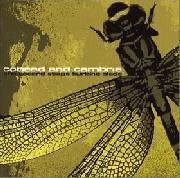 | Coheed and Cambria
The Second Stage Turbine Blade
There's a long-running debate over which Coheed album takes the title of their best release?to be fair, every album not named No World for Tomorrow can stake a legitimate claim?but there's no arguing the fact that The Second Stage Turbine Blade contains some of, if not most of, the quartet's most original and engaging material. At the very least, it's the first chapter of the story the band weaves perhaps a bit too intricately throughout their albums and the world's first introduction to the mildly disturbing combination of Claudio Sanchez's voice and hair. While Coheed strayed away from the raw, eerie feel that lent itself to the classic opening moments of "Delirium Trigger" and the frantic mood changes in "Junesong Provision" on future releases, SSTB was a bold debut for the band. Tracks like these and "Neverender" display a unique, melodic blend of progressive rock, post-hardcore and even pop punk, that arguably, they have yet to match. Shabutie -- Romulus | | 52 |  | Anberlin
Cities
It's honestly quite difficult to put a finger on Anberlin's basic sound, nonetheless explain to anyone why an album like Cities is so damn fantastic. Sure, things get pretty expansive for a pop-punk band when a song like the 9-minute, three-part epic of '(Fin)*' comes into play, but for the most part, Cities doesn't really go out of its way to step outside the proverbial pop-punk box. So, what exactly can we accredit Anberlin's mystery appeal to? Perhaps Stephen Christian's smooth, powerful voice and oftentimes impressively dark lyrics? If not, perhaps the band's mastery of the acoustic ballad or their experimentation with electronic elements make Cities so grand? Or perhaps not. See, what I've personally decided makes Cities so engaging and musically satisfying is the subtleties: the offtime chorus introduction in 'Adelaide', the elegant vocal layering in 'The Unwinding Cable Car' and the gentle strings of 'Inevitable' are all vehicles to Cities' tremendous success. The intricacies that mesh together to create Cities are the glue to an already impressive (and deliciously dark) machine -- Cities is a layered, emotionally involved and well thought-out album that has defined Anberlin's career and set the bar higher for their parroting peers. If only the rest of the pop-punk world could make subtelty seem so impressive... we could entirely forget about New Surrender. -- Caleb McAlpine | | 51 | 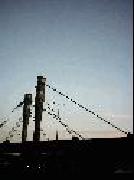 | Yndi Halda
Enjoy Eternal Bliss
Yndi Halda is music to take home to mom. Devoid of any cuts, scratches, or edges, Enjoy Eternal Bliss is clear, mellifluous goodness. Soaring instrumental flurries, rises and falls, moments of heavenly bliss and motivating vigor galore, Yndi Halda doesn't quite avoid the cliches of post-rock. How then, did it jump to the front of the pile of highly-acclaimed post-rock of the decade? Well, this listener is confident in his hypothesis- Yndi Halda aren't afraid to indulge in the cliches. No, in fact, they bask in them, they perfect them. Enjoy Eternal Bliss takes every hackneyed movement you've heard from the notoriously stale genre and adds humanity in the equation, adds energy and passion. Yndi Halda created a masterpiece by coloring within the lines, an exploit not given nearly enough credit. It's satisfying to know that in this case, Enjoy Eternal Bliss, credit has been given where credit is due. -- Eric | | 50 |  | Unwound
Leaves Turn Inside You
In retrospect, it's easy to pinpoint the seminal technology of the 21st century as one of the main forces behind the decade's incredibly widespread musical dispersion. Listeners found they had infinitely more choices than before due to the internet. There were blatant negative and positive repercussions stemming from this central theme of the decade, but one thing's for sure-- never before was it so easy to find under-the-radar masterpieces like Leaves Turn Inside You. Nobody's disputing that Unwound is not your average radio material; and without the internet, the tellingly-dark, bland album art of Leaves would have never neared my fingertips. What is widely believed to be Unwound's opus personifies the opposite of everything that relies on a chorus, that releases a single, that begs you to bob your head. Unwound were never one for catchiness, as evidenced by their Fugazi-equse 1994 masterpiece, New Plastic Ideas (my personal favorite), but Leaves marks a sharp turn to the left. It's always hit me as a contrarian album, in every which way-- Unwound ditch coherence, beauty, any semblance of warmth on their icy, disgustingly melancholic and ambitious venture. Leaves Turn Inside You may be the most uninviting album of the decade, but vocalist Justin Trosper, with cold, understated prose in hand, let's us know it's okay to revel in the bleakness. The astounding 80-minute string of seamless noise dabbles in dream-pop, post-rock, post-hardcore, among a plethora of other genres, but it's unnecessary to pin the album down to a single label. Either way, the apathetic, depraved listeners everywhere that live for reveling in the reverb and trance-like state that Leaves induces should be thankful for the decade's newfound spread of music, for the fairly obscure album couldn't have so deeply affected so many otherwise. -- Eric | | 49 |  | Mudvayne
L.D. 50
Now we all know that nu metal isn't very well liked; in fact, a lot of people seem think of it as one of the worst music genres ever to surface. Nevertheless, every genre, no matter how berated, has its own gems, and L.D. 50 is most certainly a one for nu metal. With its unorthodox time signatures in the guitar department, and unpredictable songwriting, L.D. 50 proves to be a technical and multifaceted album not only when compared to its direct peers, but also when put up against albums from way less limited (metal) genres. What's even better for fans of such music is that Mudvayne are one of the best in channeling sheer emotion through their music. Their sound on L.D. 50 is coarse and raw (but nevertheless excellent), their lyrics, despite being full of hatred, pain and disappointment, are well written, and Chad Grey's vocal delivery is nothing short of crazed. Throughout the course of 17 tracks, L.D. 50 brings the listener some of the most pissed-off metal music ever to be put on a disc, yet it is very well composed at the same time, being even thought-provoking every now and then, and that alone is something worth hearing. -- Styles | | 48 | 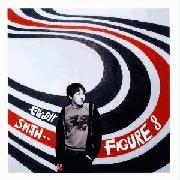 | Elliott Smith
Figure 8
Considering that Elliott Smith is one of the most beloved figures in indie music, it's a little curious that one of his biggest releases has gone virtually unnoticed in talks of the decade's best albums. Could it be that the gleeful, twinkling piano lines of "Everything Means Nothing To Me" and "Junk Bond Trader" are simply too smile-inducing? Perhaps listeners were a little uncomfortable listening to how "Somebody That I Used to Know" showcases Elliott's acoustic abilities better than practically any other song in his discography? Maybe longtime fans were bothered that Elliott took his catchiness to a whole new level with "Happiness?" No, those are reasons to fall in love with Figure 8, I think. When it comes down to it, this isn't the same Elliott Smith that we fell in love with on his self-titled or Either/Or. I hesitate to say that the turn of the millennium rendered Elliott a newfound lighthearted joy, because his self-consciousness, his yearning, is apparent more than ever on Figure 8. The difference though is that we find Elliott looking up more than ever, too, even if it's still from down low. With jubilant melodies and a poppier aesthetic, the singer-songwriter is courageously trying to climb out of the ditch of drugs and despair he dug himself into back in the 90's- that dark, faraway time. Figure 8 doesn't achieve the same personal connection with me that his other works do, admittedly, because of his fortunate change of heart, the hope that seems to inhabit him on this LP. It's hard to be disappointed with Elliott, king of the melancholy, indulging in a moment of optimism on Figure 8 though, because the sincerity, exquisite songwriting, and incredible knack for a little instrument called the guitar remains intact here. The only shame about Figure 8 is the fact that, eventually, those slight glimpses into a happier world weren't enough to save him from himself in the end. -- Eric | | 47 | 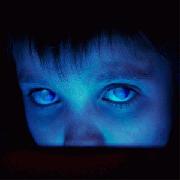 | Porcupine Tree
Fear of a Blank Planet
Steven Wilson, as whiny and pretentious as ever, tells the sad story of an oversaturated, commercialized American youth broken up by media influence and ultimate boredom - and as immature as the lyrics and concept seemingly get, Wilson gets his "teenaged society in a coma" message across very clearly on Fear of a Blank Planet. See, the concept of Fear of a Blank Planet is a double edged sword of which can be understood both from a stance of relatability and from observation. If Wilson's dark and deliberately juvenile lyrics don't affect you on a personal, aching level, they're more likely to resound with you in terms of images and sensory understanding. As pretentious as it sounds, the album couldn't have painted a more perfect aural picture with its bleak sounding atmosphere and almost-smothering density. We've all seen and observed the gradual decay of adolescent society, but we've never heard it put to record quite like this before. Employing a handful of guest musicians, the incredible girth and dynamic of the 17-minute Anesthetize and an array of surprisingly heavy riffs/patterns, Fear of a Blank Planet paints upon an eery canvas an incredibly bleak but ultimately captivating collection of songs that eclipses all of Porcupine Tree's earlier efforts. -- Caleb McAlpine | | 46 |  | Underoath
Define The Great Line
If you were like anybody else with their head on straight, you probably identified Underoath's They're Only Chasing Safety as the sound of an already struggling metalcore band fizzling out under the pressure of a new vocalist and an absurdly poppy composition style. But hey, the consuming market decided that it had never heard a better song than 'Reinventing Your Exit' or 'Some Will Seek Forgiveness (Others Escape)' and Underoath exploded on to the scene stronger than they ever had. So, in natural progression, Underoath returned to the studio to record their fifth album to do the unthinkable - riding the tails of Safety's super-poppy success, the band pulled a ?180 and veered into heavy-as-balls, frantic, roaring metalcore territory that had the band dabbling in post-metal elements ('Casting Such a Thin Shadow') and had vocalist Spencer Chamberlain thrashing his voice around like a broken chew toy. And the funny thing is, it worked. The bouncy fanbase they acquired with Safety tried hard to like the new sound and everybody else got over their surprise and realized that Define the Great Line truly was something special (even John Hanson). The ambient interlude of 'Salmarnir', the relentless, dissonant 'In Regards to Myself' and the sprawling, epic 'To Whom It May Concern' all represent different sides of Define the Great Line's model of Underoath and each one of them are equally powerful. Quite the surprise coming from the band who wrote 'Reinventing Your Exit' only two years before. -- Caleb McAlpine | | 45 |  | Thrice
The Artist In The Ambulance
The Artist In The Ambulance remains as one of those rare albums that succeed in remaining true to its roots while fusing more accessible additions to its shape, while coming off as something more endearing than toothless and ill-advised. It upped the melodic side perfected on The Illusion Of Safety, but moved away from the gang chant nature to a more user friendly sing along, so to speak. It's an album that had its sights set very high, and pursues that unseen landmark with a fervent passion, going for broke, refining and tightening its sound in the process. It's a concise and expertly assembled package, variety strewn across the album, but never straying too far from home. Dustin's vocals bought a true sense of honesty and passion to the album (always present but now backed by a few years of confidence in himself and the band as a whole) and here they work more than ever before. Sure, he deals with talks of miracles and redemption, but there's just something about the sincerity in his words and his voice that makes me want to subscribe to his take on the world he finds himself in.
The music finds itself working in perfect sync with Kensrue's performance, matching him tone for violent tone on the album's hard hitter 'Paper Tigers', and rising and falling with him on audience participation highlight 'Stare At The Sun'. The pace of the guitars finds itself slowed down a breadth, with more room for reflection than provided on Illusion..., the frantic nature of their last outing still firmly entrenched in the makeup of this album, but stretched out and reserved for more "breakout" moments, than being a constant factor in the equation. And sure this "experimentation" and "diversity" so to speak, would become much more apparent and influential in their later works, here it's represented as a much more balanced factor, the ferocious and the calm alternate over each other, hitting and bouncing back, again and again, forming a light vs dark contrast that runs the course of the album. This is Thrice experimenting with their roots and coming away successful, not Thrice challenging themselves.....and coming away successful. I say that in belief that this really wasn't a challenging effort for the band, to me The Artist In The Ambulance was the very obvious culmination of their career up until that point; there was no surprise in how this would turn out, what was surprising is where they went from here. -- Deviant | | 44 |  | The Antlers
Hospice
Hospice is one of my favorite types of albums- the kind that doesn't hit you all at once, but rather chooses to reveal itself over time. At first it's easy to be intrigued by the quiet, lively melodies and promptly become entranced by "Two" or "Sylvia," but it's not long before the sad story behind Hospice takes center stage. Eventually, it's difficult not to fall deep in love with the dying cancer patient that Peter Silberman so delicately crafts with his tender voice and rich atmosphere. Peeling away the thin layers of Hospice is a lonesome affair, matching the album's birthplace, an isolated Brooklyn apartment. Be wary though, because embarking into this experience of an album before has given me oddly potent side-efects of loneliness, or sadness. Ranging from grandiose to minimalist, The Antlers use a wide arsenal of tools to achieve the perfect mixture of self-loathing and even hopefulness on the cold, 2009 indie record. Yet, as the dramatic ordeal begins to take shape and the introverted record comes to life, it becomes apparent that The Antlers' Hopsice is the best melancholic indie album this side of For Emma, Forever Ago. -- Eric | | 43 | 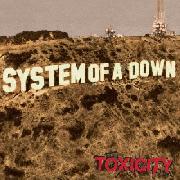 | System of a Down
Toxicity
I think its fair to assume that most of us remember when 'Chop Suey!' and the like burst onto MTV way back in the glory days of 2001. Despite the overkill it would soon suffer it opened up a whole new generation to System Of A Down, kids unfamiliar with their deliriously demented yet rough around the edges self titled debut. For awhile it quite literally dwarfed the world, and there were many who feared that the soon to be released album just wouldn't live up to expectations. Fickle as that may sound, you couldn't help but wonder what could possibly follow that juggernaut of a teen anthem. And yet, almost against all odds, System succeeded in the impossible, releasing quite possibly the most bizarre and scarily rabid "mainstream metal" album of the last decade. Refining their sound while also dispensing with the rulebook (and lets face it, Serj & co. probably never read the damn thing in the first place) Toxicity was as abrasive as it was catchy. Merging schizophrenic vocals with manic intensity System dispensed with pretense and emerged with this utterly strange yet mesmerizing and engaging album; whether they flirted with the idea of a ballad (ATWA) or went full insane (all of the rest) we were captivated by its strength and no-holds-barred approach to the nu-metal tag... and the damn thing just hasn't aged a day. -- Deviant | | 42 | 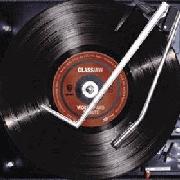 | Glassjaw
Worship and Tribute
It's a testament to the creative fury and passion of Glassjaw for just how warmly remembered they are for what has essentially been a career made up of 2 full lengths and a whole swag of broken promises (there's an EP here and there, but still). Before their disintegration and subsequent rebirth, Glassjaw were able to grace us with one of the most diverse and amorphous post-hardcore albums since the genre's bastard birth. On Worship and Tribute, Palumbo and crew manage to forge their own sound without seeming to carve their own idiom at all; using splashes of Afrobeat, Jazz and funk, Glassjaw mark their motto: come bask in our eclecticism, in all its labyrinthian glory. By not producing anything readily identifiable as "definitively Glassjaw," Worship And Tribute bears something of a resemblance to a maze--twists and turns and unexpected road blocks are set up to catch the listener off guard. You can never be sure of what direction is to be taken next. While it could be passed off as a lack of singular cohesion, Worship And Tribute is the triumphant result of a band tired of following a tired paradigm, its successful experimentation that produced tremendous results. It's a ferocious and, at times, psychedelic ensemble of tracks that careen down a path very rarely traveled in the confines of music, led by one of the most versatile and volatile singers in post hardcore. A bewildering yet oddly calming listen, Glassjaw have secured their place in post hardcore royalty. -- Deviant | | 41 |  | Have a Nice Life
Deathconsciousness
Anyone that purchased Deathconsciousness received a highly detailed booklet with the record, in which an unnamed scholar articulates an esoteric cult-like religion called Antiocheanism. This obscure source material provides much of the inspiration for the theme, lyrics and overall atmosphere of Deathconsciousness. A generalisation of Antiocheanism is that it involves a person embracing death, and becoming conscious of it, thus becoming deathconscious. Without going much into the subject, this morbid concept provides the backbone for Have a Nice Life's grand project. Much of the lyrics are adapted from the Antiochean religious text, entitled The Books of Terror and Longing, or at the very least inspired by it ? they are simplistic, yet evoke unmatched sentiment. The lines of 'but I just don't accept this, I just don't accept this at all' from 'Bloodhail' are haunting at the very least, regardless of how deeply one looks into them. Despite how awe-inspiring and meticulous Deathconsciousness' subject matter is, the album is epic in every conceivable sense, and this just as much applies to its composition as to its thematic substance. There is no 'technicality' here, in the objective sense of the word ? Have a Nice Life construct their songs from straightforward premises, but nonetheless do it in a highly interesting way. Imagine a fusion of ambient, metal, post-rock, and most of all, new wave, and you have a somewhat suitable description of Deathconsciousness. But still, it demands to be heard to be understood, and trying to describe the attraction this unique record has in so few words is not an easy task. Deathconsciousness has not and probably will never gain mainstream recognition, but it certainly rocked the musical underground upon its release. It rightfully deserves a spot on this list for a variety of reasons, from the intricate details of its thematic and compositional construction to the sheer strength of its songs. It's well known that this is one of Sputnikmusic's favourite records (hence its appearance on this list), but this inarguably a piece of music which should appear on anyone's decade list. -- Berkay | | 40 |  | Cynic
Traced in Air
Well, there's no use fighting it - Traced in Air is the best metal album of the decade. Every twist and sharp movement is an exciting joy; the shifts between the sweet vocoder harmonies and the guttural, piercing growls an initially shocking but ultimately rewarding display of versatility. Your attention seldom wanes across eight engaging, intricately-arranged works of dense modern art - "The Space for This" and "King of Those Who Know" the best examples one can provide. This is a must-listen record. No, we're not even talking genres any more. You'll be hard pressed to find a stronger, more forward-thinking and overall brilliant album from recent years. -- Atavanhalen | | 39 |  | Cult of Luna
Salvation
Salvation can very well be described as the definitive post-metal album. It has a deep atmosphere, loud but also nimble and, at times, pulchritudinous guitar playing, strong screamed vocals, and a well-working, captivating general sound ? as far as components go, it is perfect. And in reality, it's not far from it either. Cult of Luna do a splendid job of executing their music at the highest quality and paying attention to every little detail there is, both musically and atmospherically. This doesn't only apply to Salvation, mind you; it can be said about all their records. Because of that, it is hard to hail Salvation as Cult of Luna's magnum opus, even if it is a splendid album, since the competition is just too tight to call. Nevertheless, it has every right to be on this decade list, and if you ask me, it should even be placed higher because it is post-metal at its finest. Too bad it is the only Cult of Luna offering here, as most of this band's work deserves high recognition. -- Styles | | 38 |  | Opeth
Ghost Reveries
Let's begin with a simple truth, here: you love Opeth. We all love Opeth, really. If Mikael ?kerfeldt came to the proverbial Sputnikmusic door selling girl scout cookies, we'd collectively, without hesitation, buy his entire goddamn supply. And probably all the girl scouts too. Equivocally and nigh objectively, Opeth are great - you see, the deeper, more disturbing question that everybody struggles with is pinning down which Opeth album is the greatest. Unfortunately for Ghost Reveries, our darling diamond-in-the-rough here, it doesn't usually come into contention with the likes of Blackwater Park or Still Life - but why the hell shouldn't it? Ghost Reveries sees Opeth doing what they do best: conjuring up bangin', proggy riffs and beastly vocals in relentless slews of pure heaviness in juxtaposition with ethereal acoustic passages and jazzy, dissonant guitar solos. And fine sirs, look no further than 'Ghost of Perdition' and 'The Baying of the Hounds' for clarification; Ghost Reveries is no weakest link in the Opeth chain. Or how about 'Reverie/Harlequin Forest'? By taking its sweet time to balance out the heavier and mellower sides in calculated restraint, the eventual climax at the end of the song is made all the more delightful. So while Ghost Reveries may not mark any huge departures from the band's usual meanderings, its seemingly more thought-out song structure represents an Opeth just a few clicks smarter than the one that wrote Blackwater Park. -- Caleb McAlpine | | 37 |  | Death Cab For Cutie
Transatlanticism
While hosting a party in my teenage years, I once ran out of "party music" to play. Needless to say, I didn't possess very much to dance to, so I turned to something that the majority of the guests, no matter what their musical inclination, would enjoy. I landed on Death Cab For Cutie's Transatlanticism. I was quickly met by a friend of mine who informed me that this was more conducive to making out, than to having a party. For some reason I had never thought of it like that, so a few weeks later I put the make-out theory to the test. It worked, because when Ben Gibbard repeats "I want you so much closer / come on" over and over again on the title track, it sounds sweet and sincere, instead of forceful and creepy. That's what the lyrics on this album are able to accomplish. It holds an honest appeal that straddles the line of embarrassment, never presented better than on "Lightness". The music itself is Death Cab at their best; eschewing conventional song structures without being obvious. Preferring subtle layers, like the vibes that enter the end of "Title and Registration", over verse-chorus-verse standard. In reality though, the music and lyrics are a nice draw, but it goes back to that make-out session where Transatlanticism earns its merit with the majority of the Sputnik crowd (male). Girls fall in love with Death Cab, and we fall in love with girls. Frankly I can't think of a better reason as to why Transatlanticism deserves a place on a best-of decade list. -- Keelan H. | | 36 |  | A Wilhelm Scream
Career Suicide
In the careers of truly amazing bands, there's usually a turning point to be found where the band transitions from just "great" to "shit-the-bed-insane." Now, it's happened to A Wilhelm Scream; after the relative underground successes of Mute Print and Ruiner, because the tech-punk masters have been joined by new bassist Brian Robinson, and subsequently kicked things up a notch or twelve.
First and foremost, this is a fast and thoroughly relentless album from start to triumphant finish; some might call such an approach rather one-dimensional, but the sheer impact of every single track points more towards terms like "focused." Each member, new and old, delivers the standout performance of their career on this raw, aggressive release.
Even in the face of such consistent quality and performance, there are still certain moments which will make your jaw drop: for example, the tight interplay in the rhythm section at the start of "5 to 9," where rapid bass tapping and intricate drumming lock together in an almost mathcore-like display of rhythmic finesse behind the melodic guitar flourishes. Or, how about the infectious up-and-down lead guitar harmonies that herald the arrival of "These Dead Streets?" Then again, there's the rapid vocal trade-offs and harmonies throughout "The Horse," not to mention the sick bass tapping towards the start of the song. There's also the bass and guitar solos in "Jaws 3, People 0," and the snaking vocal harmonies at the start of "Cold Slither II," and the particularly frantic drumming during the intro of "Check Request Denied," and... Well, it's probably best I leave it at that, because if I were to continue with a comprehensive list of highlights, I'd end up listing pretty much every part of every song.
Despite all the praise I've heaped upon it, Career Suicide is still very much a grower. This is the sort of album that inspires non-musicians to start playing, and seasoned musicians to hang up their instruments, frustrated in the knowledge that they'll never reach this kind of standard. In short, Career Suicide TOTALLY. FUCKING. RIPS. -- Dan Smith | | 35 |  | Isis
Panopticon
First off, the best possible thing I can say about Panopticon, nay Isis itself, is that I actually enjoy listening to it/them. Now before you get your knickers in a bunch, I do not claim to have vastly superior tastes to everyone else (only some). Rather, if one simply looked at my taste in music they would surmise me as a big ol' indie wimp, or jazz wimp, or folk wimp. I conclude, a wimp. And Isis, oh Isis are not wimpy. They mire themselves in the muck and sludge of distortion and vocalist Aaron Turner sounds like his mouth is constantly full of whiskey and cigarettes; literally cigarettes, not just smoke. But then those moments of light come through; the bass in the opening of "Backlit", or the soaring finale of closer "Grinning Mouths". Because what marks Isis different from most other metal bands, at least for me, is how they rely just as much on chord choice, timbre and tone as they do on any sort of riff. It gives the band a strong structure from which they create their elliptical, dynamic tracks. And Panopticon is their best representation of this sound. -- Keelan H. | | 34 |  | Say Anything
...Is A Real Boy
Cursory personal observation of mine concludes that we all have a friend like Max Bemis-- that one crazy motherfucker who forgot to take his medication this morning and always takes things too far. On the bright side though, the Maxes of the world provide endless entertainment, and ... Is A Real Boy is musical proof of this. Listen as Bemis spills his brains out through his mouth, with a snide snarl and a chip on his shoulder. From self-conscious one-liners to brilliantly disparaging remarks on "hip" culture, racism, and a variety of affairs, Say Anything lights a fire under pop-punk that makes their peers sound utterly underwhelming. Perhaps the album's greatest achievement outside of Bemis' delightfully scathing wordplay is the band's ability to circumvent practically every pop-punk cliche. Say Anything delivers dynamic song structures and abundant variety throughout, separating Say Anything far ahead of their peers. It's no wonder their 2004 LP spurred various copycat bands, none of which held a candle to the kick-start that Say Anything brought to the scene (one in desperate need of some fresh flair and style). With ... Is A Real Boy, Bemis solidifies Say Anything among pop-punk nobility. Yet, as it always is with Maxes I know, he's far more content in his role as court jester. -- Eric | | 33 |  | maudlin of the Well
Bath
Out of every album on this list, I'd say this is about as weird and as far from being placed into a genre as you can get, while still retaining an incredibly intense and metal vibe throughout. Bath is experimental as hell, as every song basically takes on an entirely new sound than the one before it, while never straying from a core sound the band has seemed to dig out for themselves. Toby Driver's vocals are schizophrenic, beautiful, and crushing, depending on the track you're on at the time. While this album might be a bit too much to swallow on the first listen, it's still one of the most "out-there" metal releases of this decade and worth any fan of progressive music's attention. -- Kit Brown | | 32 |  | Gospel
The Moon Is a Dead World
With their only LP, Gospel gives the word "unique" a little less merit. As extraordinary and different The Moon Is A Dead World is, it certainly makes me think "unique" gets tacked onto bands a little too often. The passion so evident on Gospel's full-length isn't limited simply to tenacious screaming and raw, jagged guitar lines, as is par for the course. Rather, The Moon Is A Dead World floors listeners with a distinct flavor of screamo all their own-- equal parts spellbinding and awe-inspiring. Be it heavy, escalating build-ups or the cathartic releases of riff upon riff at the top, Gospel transcends musical barriers, evidenced by the fact that it's so well-loved both inside and outside the genre.
By branching outside the realms of screamo's late 90's roots and creating something utterly groundbreaking, The Moon Is A Dead World truly defines screamo in the last decade, as this --the variety of unique flavors-- seemed to be the most prominent trend. Grounded in the caustic aesthetic of hardcore and coupled with the progressive tendencies of yes, Yes, Gospel truly carve a path all to themselves. By combining aspects that sound ludicrous on paper, it's no wonder the band wasn't pursued by imitators attempting to follow their trail. Perhaps that's part of the beauty. The sheer grandiosity and tenacity of their sound is intimidating, setting apart Gospel from even their most lofty contemporaries. It's certainly no coincidence that the band's next release is accompanied by tidal waves of excitement; in fact, I can't think of a more deserving recipient. -- Eric | | 31 | 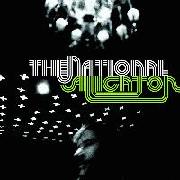 | The National
Alligator
I'm so glad you guys chose this album. I mean, it's ever so slightly behind Boxer, but I honestly wouldn't be surprised if every single one of you forgot that Alligator was your favourite album of the last 10 years. Why? Because it's so, so understated that it's hard to recall why it's so fantastic until you press play on the smoky opener 'Secret Meeting'. It's about that piano line behind the chorus of 'Lit Up' - the one you're opening iTunes now to find, because you don't remember it anywhere except subconsciously. Alligator is a record which taps gently at the panels in your head, forming its own unique path through your doubts and flaws all the way to your brain.
And then it kicks you in the face with 'Mr. November'. Honestly, is any indie album of the last 10 years this perfectly and intricately constructed? How 'Looking For Astronauts' in all of its melancholy uncertainty follows the invigorating 'Lit Up'; how the songs rise and fall but never peak or dip enough to provide stand-outs or misfires. Alligator doesn't need stand-outs and it certainly doesn't have any misfires. It's a perfect record. Berninger's narrow vocals and the tight rhythms that keep everything tense and beautiful at the same time... fuck the brilliance that is Boxer; Alligator is The National's magnum opus, a nostalgic and sepia-toned dive into swirling imagery and bold statements. It won't fuck you over. -- Adam Knott | | 30 |  | Kayo Dot
Choirs of the Eye
It seems as though everyone approaches Kayo Dot's magnum opus, Choirs of the Eye, with the same pondering: what is this? A fair question, as at first glance the album strikes as a bizarre, yet breathtaking journey into the realms of insanity and light. However it led to needless games of "name that genre", from avant-garde to neo-classical to post-rock to various subgenres of metal. For what Choirs of the Eye is quite simply a modernist classical suite in which mastermind Toby Driver employed his buddies from avant-garde metallers maudlin of the Well to be his orchestra. The melodic moments, like the french horn solo on opening dirge "Marathon" or, hell, the entire second half glorious closer "The Antique", sound similar to the works of Edward Elgar or even Ralph Vaughan Williams in their most rhythmic. Even the rhythmic quality of the record, often overlooked for the crescendoes, seems to point towards Bartok or Stravinskii (spelling?) in all their polyrhythmic glory. Oh, and those crescendoes With the exception of "The Manifold Curiosity" (arguably one of the greatest songs ever written, and no, I'm not being hyperbolic), the crescendoes have short payoffs, something very much inline with the likes of Felix Mendehlsson (spelling?). Still, Choirs of the Eye is most appreciated for its use of melody, inspired by minimalists such as Satie and Debussy, and especially fleshed out by the brilliant Mia Matsuyami (spelling?) on violin. This is a record of extremes, to be sure, and is not to be taken lightly. It's morose, uplifting, pompous, inviting, alienating, and everything in between. It is a classic. -- Keelan H. | | 29 | 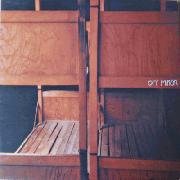 | Off Minor
The Heat Death of the Universe
The term 'heat death of the universe' is used to refer to a hypothetical scenario in which the universe ends, where it loses the required energy to sustain life or even motion. How this ties in with the Off Minor record's theme of suicide and loss is up to the listener to decide, but it is a small indication of the infinite depth that this album contains. There are certain emotional hardcore records touted as the 'best' that can be found, mainly from groups such as Circle Takes the Square, Gospel, and of course, Off Minor, but ultimately it's the emotional intricacy of Heat Death... which mesmerises me every time. I have no hesitation in claiming that this, Off Minor's second record, has the best lyrics I have ever read. Coupling this with the album's musical sophistication, in which a hardcore dynamic is inextricably fused with emotional intensity, one is left with an unforgettable record. There is no limit to how far you can fall into The Heat Death of the Universe ? it's an album that keeps on giving, and its spot on this list is so very appropriate. In fact, it should be higher. -- Berkay | | 28 |  | Modest Mouse
The Moon & Antarctica
Over the past several months, I've come to terms with the fact that the majority of people have an unsorted, inaudible The Moon & Antarctica occasionally wreaking havoc in their thought processes ? they just may not yet realize it. We as humans often find ourselves questioning the unanswerable ("Where do circles begin?"), lamenting at various degrees when in the midst of crisis ("Everything that keeps me together is falling apart"), falling victims to passively settling for less than we can obtain ("It's hard to remember, it's hard to remember / To live before you die"), and questioning our own and others' various motives and intentions ("What's that riding on your everything? / It isn't anything at all"). And just like this messy housing of doubt that so often plagues our minds, the real, recorded The Moon & Antarctica never finds any answers to the questions, nor fixes the problems or offers any solutions. Through the work of Isaac Brock and his two friends from New Jersey, the album just brings what's pondered beneath upward to the surface for our listening attention.
Strange as it may be, describing The Moon & Antarctica's sound might detail a record that would seemingly lose you with ease. Indeed, the album bends and pulls with strikingly stark contrasts in tempo, volume, and melody, not hesitating to throw your way a classic scruple from Modest Mouse's rough indie-rock palette ("A Different City"), all before slamming the brakes and giving you a reserved introspective, chilled musing ("The Cold Part"). The band stretches those post-rock-epic muscles that we never knew they had in "The Stars Are Projectors," and in "Alone Down There" and "Lives," they haphazardly switch direction mid-song with little thought for who might be listening. Sounds jarring and, you know, dangerously inconsistent, right? It's surprisingly far from the latter, as these cuts happen to be among Modest Mouse's finest songs, easily, and, well - sure, it may be jarring initially, but this rough ride is easily embraced, aided by an eerie sense of familiarity. You see, in terms of the actual The Moon & Antarctica, an answer to the origin of the circle was found here: we listened, we played on repeat, and we got to know the auditory manifestation of what we so often find ourselves pondering from time to time, again and again. -- Jared Ponton | | 27 |  | The National
Boxer
If there's one thing that Boxer doesn't possess, it's a clear-cut cause to unconditionally love the album. From the more obvious aspects like Matt Berninger's hazy, lovelorn vocal chords or the catchy melodies of "Apartment Story," a.k.a. the song that plays on repeat in Heaven, the surface level of Boxer is teeming with reasons to praise the lackadaisically genius indie band. What really separates my favorite album of the decade, though, is all the life beneath the surface. Like a rainforest, there's a vivacious ecosystem of subtleties and complexities that, upon subsequent glances, seal the deal in solidifying The National's place among indie royalty. Question: How long did it take before the dramatic angst and discomfort of "Green Gloves" and "Mistaken For Strangers" set in? Do you remember the time where a few words eloquently strung together in "Slow Show" shed a whole new light on a loved one for you? And what was your reaction when became obvious that Brian Devendorf's drumming was quietly impeccable, throughout? About 2 months, of course, and awe-inspired.
To say the least, the most charming record of the 2000's has much pushing in its favor. For instance, the poignant balance between tension and release has never been crafted quite so adeptly. Melodies range from haunting to catchy, and they're complemented by the melancholy yet uplifting atmosphere. Made extra-obvious by my over-describing, Boxer is not the easiest album to describe, which is odd considering how well the album ebbs and flows without the slightest of snares, from the bombast of "Fake Empire" to the understated slumber of "Gospel." And while I don't sense any distinct innovation in The National's songwriting, there's definitely a feeling of simplicity perfected. Boxer has always sounded to me like the group taking a simple color --like a deep, moody blue-- and surrounding it with enough context and meaning, shades and lighting, giving off an aura of simplistic perfection, sort of like that surreal glow that emanates off of certain painters' masterpieces. If Alligator was The National proving to the world that they could contend on an international stage with a stunning collection of emotive indie rock, Boxer is The National proving to themselves that they could do so. All the intricacies, the underlying passion, the unmatched poignance: when Boxer comes to a close, it truly stands as The National's masterpiece, an album that took a complex feeling of self-doubt and painted a picture to communicate it with such poignance and beauty, even a few carefree moments of jubilation stuck in there too for good measure. If ever an album came close to perfect during this tumultuous past decade, there's no doubt in my still-awestruck mind that Boxer is that album. -- Eric | | 26 | 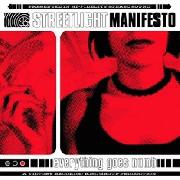 | Streetlight Manifesto
Everything Goes Numb
Listening to Streetlight Manifesto's debut Everything Goes Numb, it isn't a secret as to why the album is often considered the best 3rd wave ska, nay ska album period. For one, it actually feels like a thought out, sequenced album. In a genre noted, even by its purist fans, for not producing albums that are always (ie. almost every time) enthralling from start to finish, Everything Goes Numb feels like a triumph. That triumph is wholly indebted to chief songwriter Tomas Kalnoky who is never afraid to dip into other musical influences. It's these, often surprising, detours that make the album great. The tribal rhythms and generally meandering composition of "Here's to Life", or the eastern European finale to "If and When We Rise Again". Plus, who the fuck doesn't like "Point/Counterpoint"? Everything Goes Numb is an album loved and appreciated across many musical spectrums, and for good reason. -- Keelan H. | | 25 |  | Animal Collective
Merriweather Post Pavilion
I've tried and tired to think of new words for Merriweather Post Pavillion and, as the old clich? goes, I can't. We've listed all the things we find in this record more times than we've listened to it; the organic electronic feels, a kind of oxymoronic meeting of summer and winter, the simple joys of well-executed, well-placed pop music. And maybe we said too much when we said anything at all; Merriweather Post Pavillion, lame as it may sound, doesn't find descriptors through words, and that's because this isn't an album about words: we find the best in Avey, Panda and Geologist when they hash up their words and when they use movements to communicate meaning. Why else is that "ooooh!" our favourite moment of "My Girls?" Why else do the trio fall into their most (un)realised trance sequence in the collage that is "Brothersport?" Even when Avey and Panda splutter their thoughts onto paper, it's simply to remind us of their maxim, that feeling is good; on this album, it comes on "Guys Eyes," with the simple declaration that these guys "really just want to do what their body wants to." Merriweather Post Pavillion rejects thinking in favour of an experience. And whether you think it's summer music or winter music or autumn music, it was our experience of 2009. -- Robin Smith | | 24 |  | The Mars Volta
Frances the Mute
The Mars Volta lead a strange existence. They're one of the few remaining prog-rock collectives that stay close to the way of the genre's old-guard, in as much as they act like they're at the world's most showy piano recital, and, they make sure their storyboarding is just as technical; there are part As, Bcs and Cs, each filled with their own ridiculous lyricism and cryptic clues. But even with all the clutter that comes with being 'so prog-rock', they're more likely to evoke emotional reaction than they are to get us fawning over that 'epic guitar solo'. Omar Rodrigeuz-Lopez does a lot with his guitar on Frances the Mute, and the band behind him are just as established on their instruments, but there's one guy in the Mars Volta who reminds us that there's more to life than making "Cygnus? Vismund Cygnus" impossible to learn. Cedric Bixlir Zavala sings his heart out on Frances the Mute, and that is no hyperbole: on "The Widow" his vocals carry the song to heights prog-rock never knew, and he transforms "Miranda" into something more colossal than it ever attempted to be for its diverse musicianship. Prog-rock never knew a singer with this sensitivity. Zavala is the genre's darling, and he makes Frances the Mute lovelier and more emotional than any awesome guitarist ever could. -- Robin Smith | | 23 | 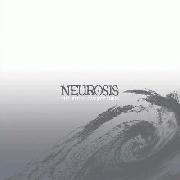 | Neurosis
The Eye of Every Storm
"There's a lot to take away from The Eye Of Every Storm, both musically and emotionally. It's the kind of rare beauty found in only a small handful of albums strewn about the metal world, but it's a territory that Neurosis have traversed more than once during their illustrious career as a band. The soundscapes strewn about The Eye Of Every Storm are numerous and varied, but not a single one is out of place, and all are equally haunting. Intertwined with resonant guitar melodies that slide around during down-tempo breaks and bridges are Steve Von Till's throaty vocals that quietly build momentum to the point where the music crashes forth in a single wave, a trend perfectly exemplified by the opener "Burn".
It's this sense that the music isn't in any real hurry to go anywhere that is the most deceiving trait of the album. As the listener is caught in the throes of cooing whispers and subtle picks at the guitar, a crashing wall of distorted riffs and echoing cymbals show you that The Eye Of Every Storm[i/] is anything but. The density of the music is also a clever illusion, because underneath the lengthy tracks and seemingly sporadic pace the album is a fluid, coherent piece of art that is easily the most complete and realized piece of Neurosis' discography. You'll find, soon enough, that the allure of The Eye Of Every Storm is almost overbearing, and its swirling maelstrom of eerie but meaningful compositions is as beautiful and calming as, well, I'll let you finish that one." -- Kyle Ward | | 22 |  | Radiohead
In Rainbows
Oh hey, so the jury's still kind of out deciding on whether Radiohead's 2007 pay-what-you-want, i.e. it's-okay-to-steal-this-album marketing trick was really all that good of an idea, much less being revolutionary. If the verdict was up to me, at this time anyway, I would just say that the move was God-awful; because, let's face it, Radiohead didn't do it for money, prestige, or even a spot in the history books ? God knows that they were already in there anyway, right? They did it to needlessly screw with the system, yet again. Though, that this isn't necessarily the problem I have with Yorke and his boys' financial tactics. The problem I have with their game was one of the effects. For a year or two after In Rainbows' release, and even partly to this very day, Radiohead's online distribution of their seventh studio album overshadowed and obscured the fact that they had actually done it again: the best band in the world had just proven that they were once again the best band in the world.
In Rainbows marks an interesting point in Radiohead's career. In one sense, it is a regression, a return to the band's 90s conventional tactics at songwriting. In another, the album is a relief: Yorke and his boys can still write some of the best alternate rock songs in the world. The band came back to the rest of us on Earth from electric-experimentation outer space with their best collection of pure rock songs in nearly a decade. Unlike the offerings of the other biggest bands of the world, Radiohead once again wrote songs that are both timelessly resilient and reserved in nature, a cold lover that you always return to but whom prefers to remain inside, hidden from the rest of world. Radiohead didn't need colossal amounts of radio play, popularity, critical acclaim, and especially gimmicky market tactics to sell In Rainbows: the music's beauty just speaks for itself. Whereas Kid A was proof that the band were the owners of the world of experimental music, In Rainbows is the indicator that Radiohead are once again the owners of conventional music. They're still the best band in the world, clearly, and it literally seems that they cannot fail in any direction they wish to take. -- Jared Ponton | | 21 |  | The Gaslight Anthem
The 59 Sound
The '59 Sound is an album of sentiment. Regardless of whether you were born in '59 or '89, whether or not you even comprehend Brian Fallon's stories, this is sentiment and nostalgia that will let you reminisce of times past, friends you used to have, places you used to go. As an album, The '59 Sound's twelve wistful indie-rock anthems take the listener back through treasured memories, the unrestrained and youthful jubilation it expresses further accentuated by its subtle punk influence. In all honesty, there is little variety here, but there doesn't need to be, and there isn't meant to be ? every song drips with melancholy and elation, and after countless plays you will still feel the urge to throw your arms up and sing along to whatever Sally said. There really isn't much to explain when commenting on how The '59 Sound made the top 25 ? it's not because these songs are overly technical, it's not because the lyrics are the best ever written, and it's certainly not because this style of music is original in any way. It's simply because those who voted for this record love it with such fervor and passion that it seemed almost unforgivable to not include it on a list of 2010's best records. And that passion it incites is really all the justification it needs. -- Berkay | | 20 |  | dredg
El Cielo
There is no word that describes El Cielo more than "epic." The lyrics are pure poetry, the instruments devise a dense, faraway atmosphere, and the lush vocals of Gavin Hayes give the whole experience a feeling every bit as dreamy as the clouds on the album's front cover. El Cielo is the musical representation of all that is abstract...the whole thing possesses an unconscious yet lively soundscape that is meant to complement Salvador Dali's 1944 painting depicting sleep paralysis. The task sounds extremely demanding, if not nearly impossible, to accomplish but Dredg comes as close to hitting the nail on the head as any artist ever will.
The momentum that this album carries is very soft and peaceful sounding, yet extremely certain in how it dictates its direction. Every track on El Cielo belongs there, in the exact order that it was placed in. The songs all flow together seamlessly, propelled by beautiful guitar work, active drumming, and alternating tempos that seem to transition flawlessly between tranquility and aggression. It is the brilliant chemistry between each band member - and their exact understanding of their specific role within creating the music - that allows El Cielo to sound so dynamic. The vocalist drapes a curtain-like atmosphere over the music that saturates it with emotion, the guitarist and bassist work together to drive the tempo, and the drummer does just enough to keep the listener entranced without doing anything unnecessarily showy or complex. While many albums are only able to sustain such momentum temporarily, El Cielo maintains it from start to finish without sounding choppy or forced. "The Canyon Behind Her" might be the best illustration of this, with gentler moments that conjure up the aforementioned dream-like atmosphere as well as heavy, crashing guitar crescendos. Throughout its six and a half minute length, the song is able to incorporate so many different levels of intensity into the same style of music, serving as a microcosm of El Cielo's whole; a whole that is abstract, dreamy, technically profound, and as anyone who has heard the album knows, epic. -- SowingSeason | | 19 |  | Sigur Ros
( )
We've all known moments where it was difficult to know whether to laugh or cry, overwhelming pockets of emotion where no reaction seemed to do the weight of a realisation justice. It's like the twinge you get when you remember unequivocally happy and pure moments from years ago, and you're not sure how to respond. The proper thing to do is to dust yourself off and remember that life happens from here onwards, and the rest of it has already gone. But there's something incredible about those moments of inevitable nostalgia, something pure, and we all recognise the feeling in the pit of our stomachs, try as we might to ignore it. With the duality of those moments as its fulcrum, ( ) is that feeling in all its potency for 71 whole minutes.
It's gentle and unassuming. It's also devastatingly simple. Most of its heartstopping moments comprise one stunning idea, surrounded by a majestic sea of supporting instrumentation. All of these things make it arguably the most honest record ever written; there is not a moment which passes between the opening crackled keyboard of 'Untitled 1' through to the last cymbal crash of 'Untitled 8' where it feels like Sigur Ros are playing with anything other than their hearts. Their genius communicates that sincerity flawlessly, and the result is an album whose depth of emotion is capable of defining every important moment in your life, both joyful and solemn. If ( ) has a point it's that happiness and sadness are actually two sides of the same coin, and in that case, Sigur Ros are the richest band in the world. -- Adam Knott | | 18 |  | Minus the Bear
Planet of Ice
When placed into the context of Minus the Bear's discography, Planet of Ice can't help but be the least exciting release of them all. For all of the jangly, technical hullaballoo of the band's previous two releases, few songs on Planet of Ice (save for 'Throwin Shapes') really have the same carefree, jollity, have-random-rampant-sex-in-a-swimming-pool vibe that Minus the Bear made themselves a name for in the past. In place of orthodox song structure is whack time changes and interludes ('Ice Monster'), in place of impressive guitarwork is batshit-crazy-impossible guitarwork ('Double Vision Quest') and in place of backyard party sex and voyeurism is an almost romantic approach to Minus the Bear's acceptably sexist past ('White Mystery', 'When We Escape'). It's these little - yet potent - intricacies that fuel Planet of Ice's melting pot of indie wizardry.
You see, Planet of Ice is, in a nutshell, Minus the Bear finally growing up and maturing. Unlike its older, senile sibling, OMNI, Planet of Ice manages to balance maturity with listenability flawlessly. Cuts like 'White Mystery', 'Part 2' and 'Lotus' are far more reserved than anything else on the Minus the Bear catalogue, but the songs do a magnificent job of keeping the listener intrigued as they weave their way about Radiohead-esque acoustic sections, smooth clean guitar leads and ambient interludes. Better yet, Minus the Bear's new ear for maturity didn't totally eclipse the fun factor either - 'Throwin' Shapes', 'Dr. L'Ling', and 'Knights' are all bouncy, well-thought-out and, most importantly, very fun tracks that serve as an excellent example of Planet of Ice's balance. Even the band's weakest and least "fun" link, vocalist Jake Snyder, lends an uncharacteristically melodic (and often, kind of gruff!) layer to the album - instead of yachts and pirates and shit, Snyder sings in implicit metaphors and in much improved melodies. So, basically, Planet of Ice is everything you loved about Minus the Bear before and adding a pinch of prog and a crapload of maturity. By respecting their inherent fun-vibe and learning to embrace subtlety and progressive leanings, Minus the Bear managed to eclipse their entire body of work with Planet of Ice and score a well-deserved slot in the decade's accolades. -- Caleb McAlpine | | 17 |  | Arcade Fire
Funeral
Funeral arguably stands as the resurrection album of the decade, representing the ins and out of loss and longing, but more importantly, the inspiration and motivation that such tragic events in one's life can, hopefully, at least, begat in he or she to move on; and if possible with the mere force of this determination born of dour moods, seemingly take the world by storm. For this is precisely what Arcade Fire did on an indie rock scale: Funeral is an album that's born of sadness and death, which's origin of creation is often more meditated on than the actual results of its tragedy, sadly. For every "Crown of Love" and "7 Kettles," there is a "Wake Up" and "Rebellion (Lies)"; for every funeral, there is a birth.
And with this birth, Arcade Fire carved out, not just for themselves, but indie rock as a whole, a niche that would predictably fill up in the coming years following its 2004 release. This is a space full of albums that Funeral easily stands atop of, king-of-the-hill, uncontested to this day. It's an album that can be grouped with the masterpieces from The Beatles: Even if a listener is not fond of the group or the music, he or she would be a fool to deny its impact on the genre, as well as the music industry as a whole. Funeral came at the dawn of online music-downloading domination. There's not likely to be another album to have an impact like it did, both because of how music's distributing on the internet has altered and shifted how critics and listeners access music and because, well, Arcade Fire have perfected with this album the formula that takes tragedy and death and turns it into determination and life. Any attempt to better Funeral would, seemingly by default, just fall short. -- Jared Ponton | | 16 | 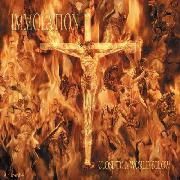 | Immolation
Close to a World Below
It's almost startling how perfectly realized Close To A World Below is. To its core, the album is filled with the essence of what makes death metal such a brutal, albeit memorable, form of music. Abrasive, but not to the point of being incoherent noise, the compositions throughout Immolation's most-revered album are nothing short of perfect, bringing to light the full realization of the coveted New York death metal sound. The mumbling of the rhythmic guitar riffs, startlingly technical guitar solos and pinch-harmonic laden transitions are a brilliant contrast to each other, and add a distinct flavor to the music which helps make the compositions rise above that of their other death metal counterparts. Add to that a battery which is intimidating to say the least, and the result is an entire album which throws its weight around, making its presence known but not beating the listener into oblivion with senseless brutality.
The fact that everything has a purpose may contribute to the sheer replay value of Close To A World Below, which is among the highest of any death metal album. Every riff creates an individual atmosphere, which is carried by the guttural growls through verse and chorus, creating a tight, coherent package of songs that are similar, but at the same time unique. When all is said and done, though, it's the aura of the album that is the most lasting; the real brooding sense of evil and hate that many other death metal acts strive to achieve, but instead fall short with a contrived, forced atmosphere that doesn't have the penchant for songwriting to back it up. To call Close To A World Below anything short of perfect is an outright lie, because when an album is one of the flagships for its entire genre, it can't be anything except that. -- Kyle Ward | | 15 |  | mewithoutYou
Brother, Sister
On Brother, Sister mewithoutYou frontman Aaron Weiss sounds unhinged. Not in the Will Sheff, I'm-slightly-insane kind of unhinged; nor the William Holden I'm-mad-as-hell kind of unhinged either. No, Weiss sounds like he's in a frustrating conundrum?or, a pickle. Or, a pickled conundrum that saturates the problem until it can't be held in the container and the oil leaks out over the side and forever you are mired in salty pickle juice. "Are you a wolf or a shadow? And why would you "rather never talk again / Than continue to pretend / That this never ends?" I have a point to all of these references, I do, and it has everything to do with the odd charm that Brother, Sister has. For even when Weiss is at his most fluent, stream-of-consciousness self, where his vocals seem to wander away from any identifiable hook, there is always an anchor. Sometimes it's his lyric motifs where he invokes God, sometimes with Biblical allusions ("The Sun and the Moon"), and sometimes in less obvious ways. Then there's the backing band. Oh yes, they're there too, with their various instrumentations that lifts closer "In a Sweater Poorly Knit," or the tension they mount in the percussive opener "Messes of Men." It all seems crazy! But from point A to point B, mewithoutYou craft a rather intelligent and oddly infectious album. Even when the middle seems to float together in an amalgamated mess, it's such a glorious mess. No wonder they are considered, above even The Mars Volta, to be this generations Simon and Garfunkel. -- Keelan H. | | 14 |  | The Mars Volta
De-Loused in the Comatorium
Listening to "Son et Lumiere" take place then subsequently fade into "Inertiatic Esp" pretty much put to rest my worries that this record would come close to being sub-par upon first listen. Little did I know it would become a defining record of my teenage years. Safe to say I hold De-Loused In The Comatorium particularly high and almost sadly, probably judge each Volta, or any ex-ATDI member's release in comparison. Which could be considered unfair but when presented with such a complete, fully realized document as De-Loused--can you blame me? A barrage of notes and sound will flood your ears almost from the get-go, akin to any Volta release since, but De-Loused has a distinct magic to it. One that they've yet to ever grasp again. The epic, noise-prog performs better and significantly more cohesively here compared to anything else they've produced. Their virtuoso ambitions aren't drowned out by a need to be different; rather, they seem to be having fun on this record.
Yet, in essence that is what makes the record such an arresting listen and keeps it as such years after the fact. Crafted during a down period, before the post-breakup coinage of the ex-Drive In kids as "geniuses" or "pompous asses." De-Loused was their initial venture out. A time when they still had something to prove and the albums go-for-broke aesthetic plays to their chaotic tendencies perfectly. The record sits firmly affixed atop their catalog as a particularly special moment where they performed a balance between their song-writing abilities and penchant for ominous fits of distortion. Where the "prog" didn't outweigh the hooks. Where Cedric and Omar worked in tandem, almost as a singular, emphatically unapologetic beast of noise. That also happens to contain some of the best riffs, tonal guitar play, frantic drumming, deep, melodic bass lines and an arresting vocal performance for the ages. "Now I'm am lost!" Bixler-Zavala yells with a berserker's fervor on "Inertiatic Esp." Yet in retrospect, I propose the theory that with De-loused In The Comatorium he's never been more vital. -- AggravatedYeti | | 13 |  | Between the Buried and Me
Colors
Still the band's most cohesive and impressive effort to date, Colors really shattered all previous expectations I had from this band. It's a 65 minute concept piece featuring more experimentation, shredding, and diversity than ever before in a BTBAM record, but never stays undeniably rooted in the band's already well-established sound. Each song offers moments previously unmentioned in the album, or even in the band's history, whether it's the almost tribal drumming at the beginning of "Informal Gluttony" or the psychotic Mr. Bungle posturing of "Sun of Nothing". "Ants of the Sky" and "White Walls" are frequently cited by fans as the band's best and most epic songs to date. And you know what? They're completely right. -- Kit Brown | | 12 |  | Deftones
White Pony
At the time of its release in 2000, White Pony was actually Deftones going soft. Compared to Adrenaline and Around the Fur, the band was clearly taking a more sophisticated, experimental approach. White Pony still has its share of heavy guitar riffs and chill-inducing screams, but that's the beauty of it all. Here, Deftones combines the nu-metal sound of their earlier releases with a lush, sensual soundscape featuring keyboards, gently whispered vocals, and enhanced texture. At times the music is nostalgic and thoughtful, other times it ranges anywhere from seductive to downright frightening. No song embodies the album's mix of styles better than "Digital Bath," which uses trippy, echoing drum beats and distorted, layered riffs to compose an atmosphere so tangible that you can almost feel yourself sink into it. That, in essence, is the trademark of this album: a band coming into its own, knowing just how it wants to sound, and bringing you along for the ride.
One aspect of White Pony's success that should not be overlooked is its importance to what is, to be blunt, a failed genre experiment. Nu-metal was quite the craze at the turn of the millennium, with all of its detuned instruments and aggressive screaming defining the pent-up rage of a growing generation. Sure, White Pony retains a great deal of those characteristics?but what it did with them was more than just innovative; it was completely ingenious. By taking the next step creatively, Deftones lifted themselves above the pool of redundancy in which other similar artists were still swimming, and brought themselves into the artistic spotlight of the world of heavy music. Their abstract, visual-oriented sound was mastered on White Pony, and therefore it has deservedly been placed amongst the greatest popular hard rock/metal albums of the new millennium. This is a landmark album for both a genre and a decade, and it will undoubtedly continue to stand the test of time. -- SowingSeason | | 11 | 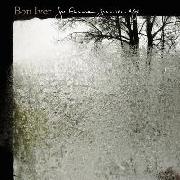 | Bon Iver
For Emma, Forever Ago
When music critics call an album important, the only people that really care are other music critics. In any case, the truly important albums are personal ones - the records you grew up with, and the songs which had a profound effect. But even though 'profound effect' is right on the money for Bon Iver's 2008 masterpiece, it's also different in that rarest of ways; For Emma, Forever Ago's significance to the listener flows almost directly from how important it is to Justin Vernon. The man responsible for these lonely folk poems wears them like a skin, shedding the weight line by line as he stumbles through his own loss and heartbreak with only an acoustic guitar for a flashlight. Vernon's falsetto ties him to his emotions, breaking when he's desperate and sinking when he's broken, and as spectators, we're never far behind.
Recorded in an isolated winter cabin, For Emma has the perfect backstory for its atmosphere, and it remains evidence that music can - and frequently does - rely on the connections we form subconsciously between it and the world it came from. For Emma is never conscious of its value, understated and down-tempo, and never ventures into the realms of experimentation, maintaining the same frosty songwriting and indie-folk fragility for all 37 short minutes of its runtime. But the horns in the title track, and the way re:stacks's introduction lingers just long enough to hurt; these are the marks of an important album, the small moments of uncalculated genius which refuse to leave you alone. For Emma, Forever Ago is full of them. -- Adam Knott | | 10 |  | Eminem
The Marshall Mathers LP
The Marshall Mathers LP ? what can be said that hasn't already been reported on, dissected, scrutinized, glorified, and protested about already? Before destroying his slim shady alter ego twice (first to get personal, second out of necessity) and before almost going the way of the dodo came this, one of the most controversial, yet brilliant albums of all time. The key to this album's success lies in the intensity of Eminem's performance (not his lyrics, but the energy that fills his words). Instead of taking The Slim Shady LP and painting it in slightly more acceptable colors, he expands upon the crudity in every possible manner, and at every possible moment. There are times when he approaches that very personal threshold he played around with on his last album (namely 'The Way I Am' and Marshall Mathers') and it's simply amazing to hear the almost abrupt turn around in his situation, going from complaints of minimum wage to being plastered over every magazine cover in the world (and you get the sense that although the lifestyle change was needed and initially welcomed, that he just can't cope with it). But for the most part he fills his rhymes with absurd murder fantasies and baits his many fans and detractors with inflamed bashing covering just about every field imaginable (religion/race/sexual orientation); even though these two distinct verbal parallels are exactly that, they both represent Eminem lashing out at the very thing he wanted most of all: attention. And it's the most incredible thing to witness a man so intent on what almost seemed like unattainable glory, now turning on it so quickly. Not only that though, but doing it with a smile on his face.
This album almost represents the beginning of the derailment for Eminem; after this so began the inevitable cycle of trying to match it, realizing he couldn't and sinking into mediocrity, the always apparent "musical hiatus", the luke warm comeback, and then "a shadow of the glory days but now reinvigorated" comeback comeback. He'll never match this album ever again, but there's really no need to, because how many people are yet to hear it? I mean really, how many are out there that somehow missed this behemoth of a record literally eat up the world at the turn of the century? Yes, it's shocking, and sometimes even disgusting, but at the same time it is an incredible, soul bearing experience that never really lets up. It became pop music even as it was denouncing pop music, it gave white boys street cred, and it turned the music world upside down. One of the most important albums in not only hip hop, but in every facet and genre of music around and yet to be discovered, The Marshall Mathers LP is a milestone that needs to be heard. -- Deviant | | 9 |  | Tool
Lateralus
When an alternative/progressive metal band release an album that is certified double-platinum by the RIAA just two years after its release, you have to bow your head in respect. When you realize that said album was released by Tool, you have no choice but to bow your head further. It's the tendency for Tool to continually (albeit slowly) release some of the most unique yet memorable material in the modern hard rock and metal scene, a trait which was quite possibly exemplified on 2001's Lateralus. It's no wonder, though, that as Maynard James Keenan sooths the listener with drawn out and misleading vocal melodies, the brilliance of what exactly Lateralus is trying to convey begins to bleed through. Slowly but surely, a singular cohesive unit begins to unfurl, and through oppressive and rumbling bass, crashing drum beats and barren guitar riffs, Lateralus shows the listener that nothing here is meant to be taken lightly.
It's perhaps this unending sense of seriousness combined with a uniquely dark and oppressive atmosphere that makes this 79-minute leviathan seem so smooth and effortless. The way "Parabol" mimics its bombastic partner "Parabola" with calming whispers of lyrics which, five minutes later, smack you across the face, is something lasting, a quality unique to Tool and unique to Lateralus. Seemingly nonsensical lyrics fill each song while equally bizarre tempo changes and time signatures dominate the musicianship, with the one constant being Keenan's echoing voice cleverly produced slightly behind the instruments. Even the likes of more "traditional" songs like "Schism" are rife with qualities uniquely progressive and uniquely Tool; the dominating bass riff that has, at this point in time, become synonymous with the band.
What really gets you, though, are the songs which aren't flamboyantly paraded around the likes of radio and Activision's Guitar Hero: World Tour. What they aren't willing to show you, despite the inclusion of not one, but two songs from Lateralus, is the plodding stretches of pure ambience and lengthy instrumental segments that dominate the other, longer tracks. It's this defiance of the norm, a realization that pure silence can be the most beautiful kind of music, that makes Lateralus what it is. Sure, there are moments where Tool get to have their fun with the heavier riffing of "Parabola" and the rolling pace of "Schism", but to listen to these songs out of context is a grave mistake; each tracks flows into the next nearly effortlessly, and if one was to listen to the album with their eyes shut they would swear that the album has half of the tracks it really does.
It's a kind of beauty not often seen in music, especially metal. In a genre where the guitar riff is king, Tool bring to the forefront the powers of using "rhythm" instruments like the drums and bass as if they were on the same level. The deep rumble of the bass and the winding lead guitar work a kind of magic that isn't especially technical in a sense that most are used to with metal, but is instead technical in more fundamental way. Everything fits in Lateralus; the album isn't a second too short or a second too long. The astounding musicianship and even more amazing songwriting are the makings of a modern classic, and as things wind down this becomes more apparent than ever before. You'll crave more from Lateralus, but deep down you'll secretly realize that you don't want to change a god damn thing. -- Kyle Ward | | 8 | 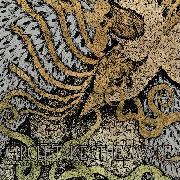 | Circle Takes the Square
As The Roots Undo
Since irrelevance is all the rage when dissecting exactly what makes Circle Takes the Square all the shapes they are, the most natural analogy I can find to tribute their classic is the words of Flaming Lips front man and general big-kid Wayne Coyne. Speaking on behalf of his flowery Glastonbury set this year, he analysed his own ridiculousness thus: "without the music giving you emotion, a lot of it would just seem silly." Okay, so he was talking about balloons, but he also said that because of the music, balloons can be transformed into "magic balls". Nice.
So even if you get giggles at the electro-pop ending of "Same Shade as Concrete," or even if that dramatic shift from the build-up of "Non-Objective Portrait of Karma" gets to you ? hell, even if it's just the verbose song titles, don't forget this: As The Roots Undo has some magic balls of its own. It has a point A and a point B (even if it is a reluctant one), and all moments seem built to represent how these guys can turn the most awful of passages into something accomplished and realistic.
As The Roots Undo is a poetic work, and whether or not that poetry needs an editor is beyond me. I simply cannot fathom a version of this record that chops down on lines as infinite as "Life is lowly anonymity, in death a noble pose, a Marat David / Tell me who wouldn't give their lives for such a soap box to die behind?" Yes, the band have points to make and ideals in their head as they write such immense aphorisms, but this record is not didactic, and that is not Circle Takes the Square. To me, these lyrics are strings that hold together a never-ending journey and sustain it for all its worth. If anything, their lyricism is so prosaic and stream-of-consciousness because tracks such as "Kill The Switch" never set out to end. The song is an onslaught of hardcore punk and angry vocal interchanges, and its tiny passages of crystallised post-rock or evil metallic riffing are there, if for no other reason, to keep this document of existence alive. Because after all, when Drew Speziale informs us he knows its all been done before and "wants to do it again," he is ultimately declaring his band's record less of a concept album and more of a proclamation of passion. Whether or not it means anything, its existence simply has to be. "Kill The Switch" eventually ends, so does the jittery "A Cater To Cough In" and even the slow-burner "In The Nervous Light Of Sunday," but the albums concept of self-realisation and journey ends just as they would have it end ? as cyclical and never-ending. "A Crater To Cough In" ends with hushed, delicate guitar lines that are as quiet as the album's introduction. It all starts again.
Still, As The Roots Undo is a 'concept album', an epic musical attempt and all that it professes to be. Every time I turn the record on I feel aware of it being part of a monumental scheme and something larger than myself, and that is a feat in itself when I consider the youth I share with these guys. For lovers and haters of these punks alike, "Interview At the Ruins" often stands as mutual ground, a heavy metal ballad with everything that makes this band monolithic ? the ethics of both prog and punk, the intensity (the marching vocal lines of "A murmur from the ruins echoes softly as the roots undo...") and the self-contained importance. It is self-contained because regardless of those big, bad themes (self-realisation and baptisms of fire), the album remains vague, lost in the poetic mopes by wailing hardcore kids. The concept becomes dismantled and forgotten, but it's as if enthusiasm for playing carries the Square over the bridge. As The Roots Undo is magic balls not balloons, and Wayne Coyne has yet to pick up a copy of this punk masterpiece. -- Robin Smith | | 7 | 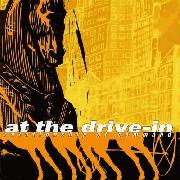 | At the Drive-In
Relationship of Command
It's clear what late-90s and early-00s rock was, for the most part, trying to achieve: the chaotic, energetic, unpredictable sound of some sort of anarchy, complete with hooks and distortion and clever bits. It failed. Nu-metal was too formulaic; pop-punk was too juvenile and, at its heart, too much of a pussy; metalcore was the mainstay of all sorts of clich?s. And then, in 2000, At The Drive-In blew holes in absolutely everything with their third full-length album, Relationship of Command. It was everything those genres and bands and albums had been trying to be, without being actually similar to any of them. They'd all been looking at it wrong.
Relationship of Command is a post-hardcore album but it squirms so much every two seconds that it seems impossible to attach the label with any permanence; that's not to say that At The Drive-In throw in ambient passages and pop hooks - precisely the opposite, in fact. It's the tiniest melodic sensibilities, the faintest cracks of breaking ground, which give the genre a new face; everything is that little bit different, be it the furious introduction of 'Arcarsenal' or the "look, we can do mid-tempo, but it's still going to be LOUD!" attitude of 'Invalid Letter Dept' - which comes adorned with beautiful piano despite its constant forward momentum.
There's not a second of predictable music on show; new riffs appear half a minute from the end of songs; never mind 'captivating', Vocalist Cedrix Bixler is insane; and structurally, these mammoth guitar-driven tracks are each and every one unique and impossible to grab hold of. That's not to even mention the opening to 'Enfliade' which sees the record's sometimes-creepy undertone brought to the surface by a raspy and threatening phone call; it's all these little touches - the sound effects pepper throughout, the screeching guitar lines, the sort-of-intimidating rhythms - that make Relationship of Command not just an essential post-hardcore record, but indeed possibly the genre's finest. Yes, ever. -- Adam Knott | | 6 |  | Godspeed You! Black Emperor
Lift Your Skinny Fists Like Antennas To
In the next two minutes, I'm basically going to try and convince you that what you're reading right now is an absolute waste of time. Lift Your Skinny Fists Like Antennas To Heaven is eighty-seven minutes and twenty-one seconds long, comprises two compact discs, four tracks and nineteen varying movements. I've got three or four paragraphs to convey why a pretentious, elaborate, self-indulgent hour and a half of music merits its place in SputnikMusic's top 10 albums of the decade. See my point yet?
My normal Plan B, then, would be to tell you how Godspeed You! Black Emperor make me feel. Unfortunately, this is impossible, not because the emotions are too subtle or impossible to underline, but because I'm not good enough. So much of the music that we hold dear stands side by side with us, as our peer, joining hands or marrying voices or calling to arms, but for all the inspiring qualities of Lift Your Skinny Fists it is never once a viable possibility that the minds behind the composition of its schizophrenic and soaring peaks and troughs are Just Guys That Went To Your School. Godspeed You! Black Emperor are better than you and me; they can do things you and I aren't capable of, and they can do them despite, and because of, their pretentious, elaborate self-indulgence.
Because "Static" is half just that - static - and because the voice samples aren't audible. Because 90 minutes is a preposterous length of time to demand a listener's attention for, and because the band don't pretend to make even those ninety minutes a smooth journey. But in spite of and due to all of these obstacles, Lift Your Skinny Fists is worth it, so worth it, like running a steeplechase and winning by half a metre. Every ounce of energy you invest into this record comes back in the breathtaking cello/viola/guitar/cymbal/bass crescendos peppered throughout. The slow builds, the lulls in momentum, the deliberate roadblocks are all placed and designed and executed with such precise genius that they dissolve into part of the climax as it's happening, and the explosions of majestic awe feel so vital, so important because of them.
Lift Your Skinny Fists Like Antennas To Heaven is the sort of record which doesn't have hooks, because the very idea of listening to a minute of the last dramatic surge is blasphemous, and because everything relies on everything before it and everything after it in order to work. Many people have claimed that Godspeed's shorter and more digestable EP Slow Riot For New Zero Kanada is more concise and therefore better, but the two records are simply different; Lift Your Skinny Fists is the work of a group of incredible musicians and artists, unrestrained, unleashed and totally off the rails. In the hands of a band less-than-sublime it would be a veritable train wreck, but in the possession of Godspeed You! Black Emperor it is simply life-changing. Set aside some uninterrupted time and all of your pre-conceptions, ignore everything I just wrote and listen to this album right from the start right to the finish. You'll know what I've been trying to say. -- Adam Knott | | 5 | 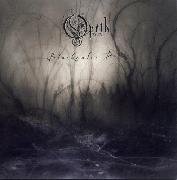 | Opeth
Blackwater Park
Even though the saying is cliche, Opeth's Blackwater Park is an album you need to "get" in order to fully love. This record has so many different layers, so many different musical ideas packed in itself, that for the average music listener, it is more than a challenging listen (at least during the first few times). I can safely say this because I didn't love Blackwater Park on my first listen either, nor did I go crazy over it during the next couple of times. But when I did come back to the album on one somber autumn night, when it finally clicked, it was musical bliss.
Blackwater Park's magnificence ultimately comes from the compositional skills of the band members. It is easy to label the meandering, jazzy acoustic sections as boring, when your heart isn't in the music; it is easy to call the atmosphere dull and the songs unnecessarily long-winded, when you are not paying attention. Again, I'm stating this because I felt the same way at first. Thus, I also have the right to say I was wrong. Blackwater Park is an album that you need to fully concentrate on if you wish to enjoy it to the maximum. Sure, it makes for an ok background music because of its rather harmless nature, but its when you are truly listening to it, trying to catch every little detail, can you discover the musical genius that lies here. The biggest positive to Blackwater Park is that there are no negatives when it comes to the musical side of things. Whereas it may take a while for the album to click with the listener, the musical proficiency that is on show here is hard, if not impossible, to argue. The way the acoustics and death growls are used and the jazz elements implemented is worth envying, and you will be hard-pressed to find a metal band (hell, any band, really) who mixes things together as well as Opeth do. Everything about Blackwater Park just screams "tasteful", especially so because the album feels like a compatible body of work, with a theme and all, despite the many different approaches (from mellow to harsh, from atmospheric to rockin') on show.
There is a reason why Blackwater Park is number five on our decade list, and number one when it comes to metal albums. While a demanding listen at first, it quickly becomes one of the most fascinating metal albums you will ever hear, as long as you will give it the necessary time it needs in order to fully click with you. It is like a good wine, or that one of a kind, special woman ? it only gets better with time. Blackwater Park is an exceptional progressive metal album, and if you pass up the opportunity to listen to this, you are missing out big time. -- Styles | | 4 | 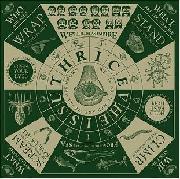 | Thrice
Vheissu
Had it not been for Vheissu, the Thrice that we know and love today would have an entirely different sound. Identity Crisis, The Illusion of Safety, and The Artist in the Ambulance were all successful on the basis of their guitar-driven post-hardcore style, and it brought them considerable amounts of exposure. So Vheissu shouldn't necessarily be credited with Thrice's overall success, but rather the level of respect that they have gained as artists. At the time of its release, Vheissu was quite an experimental deviation from the band's staple sound ? adding gorgeous piano melodies and electronic beats, all the while challenging themselves by creating various textures and atmospheric elements. Yet through all of this experimentation, Thrice managed to remain just as heavy and melodic. That is the beauty of Vheissu; it is an album that maintains the beloved qualities of Thrice while simultaneously discovering new realms of potential within their musical arsenal.
And the results are fucking brilliant. Vheissu is a journey of sorts ? not so much that it attains that dreaded title of a "concept album" ? but enough that listening to the entire experience all the way through will shake you to the core. Somewhere between the morse code introduction to "Image of the Invisible" and the epic, beautiful chord progressions that end "Red Sky", there is this unshakable feeling that something extremely important just transpired. The album is a lyrical masterpiece, which obviously contributes a great deal to the emotional weight of the Vheissu?but the real impetus that inspires listeners and drives this album to its maximum potential is quite simple: on Vheissu, Thrice pushes its capabilities as a band to the limit. Their eagerness to explore brand new styles and alter their proven technique motivates the listener to look into his own mind, identify his boundaries, and then challenge those limitations. After all, they are just restrictions that we set on ourselves for whatever reasons that we choose to believe ? whether they are personal biases against ourselves or a product of societal stereotypes. Vheissu is Thrice refusing to be contained as they cross the threshold into the realm of experimental rock, thus shattering all prior expectations set by their hardcore roots.
The effects of this album are extremely far reaching, especially within the growth of the band itself. "Atlantic" sets the groundwork for the entire theme behind the Water section of The Alchemy Index, "Hold Fast Hope" has all the intensity encompassed by the Fire segment, and "For Miles" shows the band's ability to perfectly integrate several styles at once, even with some eloquent piano thrown in ? something they would continue to illustrate throughout the whole of Beggars. This album is something truly special, and it is undoubtedly one of the single most important and influential albums of the past decade. -- SowingSeason | | 3 |  | Brand New
The Devil And God Are Raging Inside Me
Jesus Christ, that's a pretty face, one that I've seen depicted and portrayed everywhere, from the Vatican in Rome to the private school where I received my primary education, as a Hollywood-like celebrity of literal glowing beauty with lush flowing locks of hair, whose character is typically wearing a robe ever so gently gracing the ground. It's with disappointment that upon entering my adolescence I learned that the most astute researchers of the Christian faith actually have little evidence to back up the accuracy of these portraits. The version of Christ that I had grown up with as a child had suddenly been lost to me, and in more ways one. With my increasing age came the presence of many more outside influences to distract me. The line between good and bad began to blur, one veil was replaced with another, so to speak, and a war began to rage on the inside of my being: two polar opposites converged upon each other, both seemingly equal in their strength, where once before one had clearly ruled the day.
Like I and so many others, Jesse Lacey seemingly found himself in a very like situation after having left South Shore Christian School. This feeling of insecurity with one's faith, born of outside influences and inward doubt, is the crux of Brand New's The Devil and God are Raging Inside Me. It's an album that defines the unsteady spiritual state of many of Christ's followers, but is not strictly limited to those listeners in its appeal. The analogy of the Devil and God being at war can be extended and shifted to the polar combating ends of different philosophies and various other religions ? just take your pick from which conflict(s) to identify with. Above all, Lacey's appeal as a songwriter comes in his blatant honesty, seemingly removed from pride and arrogance, able to come down to our level like many of the legendary songwriters and just share with us in our uncertainties. The band act as spokesmen for our stasis of rabbit-like terror; truly, there are few things more frightening to human beings than when realizing that everything is not in our control and when our core security, upon which many base their lives, is put into question.
This is why The Devil and God is an album that defines the decade, placing so high on our collaborative best-of list: it illustrates with sound where so many of us are in our lives, that turning point of picking a side or standing in the middle of the war undecided, between whatever or whomever the forces may be. It is not the most accessible of Brand New's discography, though by its nature it's probably best that it is not. The Devil and God is a weighted listen, fully involving, taking from our emotions unrelentingly and hitting on the doubt that most of us generally like to keep hidden. You'll find that Lacey is careful to keep his targets on rotation, never exclusively pointing the finger at God, His believers, or even himself. If anything, this just solidifies the theme of uncertainty that Brand New entangle the album in. There's no one directly responsible anymore; it's a war now, and all you can do is get out of the way and wait for it to end, pick a side, or pretend it's not even real. Whichever way you choose, The Devil and God stands as a gateway to the conflict, a buffer, a pillow even, and a reminder that not everything is certain, especially the very foundations of which that many of us build our lives upon. -- Jared Ponton | | 2 |  | Converge
Jane Doe
No writer, artist or musician can escape it: Jacob Bannon writes a rise and fall for Jane Doe. But there is little in-between that gives his eponymous woman an easy role through the movement to her end.
I say eponymous, but really this masterpiece triumphs in the same way any great record of loss, anger or break-up does. We impose this name on the album's character without realising that the very thing we have defined her as is the indefinable. Bannon and his fellow punks strip away their protagonist's identity so harshly and intensely that we can see the remorse run thickly through the veins of Jane Doe, just as we can see the concept of pain in music's most lauded classics, be it Dylan's divorce spiral downwards in Blood On The Tracks, another record that omits the names, or the dissolving of relationships through Fleetwood Mac's Rumours. There is nothing accommodating about Converge's depiction of experience, and that begins at the music: this record is chaotic, dissonant and above all angry, with every instrument, every scream, everything a vehicle of anger. And 'everything' is an important word, because Bannon knows to size up his classic he has to pour emotion into every corner of his music, and make every movement count.
Converge has always been my favourite band in a variety of ?core genres that I feel out of place in and in a way it isn't the ferocious fusion of punk and metal that engages me when I turn on Jane Doe. It's the passion: the passion that justifies playing, the passion that justifies screaming and the passion that justifies themes. While I can't boast the ability to repeat the majority of the lyrics Bannon pounds into my face, I can say that a little studying of them shows how definitive they are to an understanding of the honesty this record was founded on. Machismo is creeping and crawling through the punk and metal men cultivate, but there is some sort of acceptance in Jane Doe that pulls it back from the brink of this world and into the one Bannon is left to suffer in at the hand of his fractured relationship. By the time "Jane Doe" plummets into its melodramatic fall, we have a more realistic document of macho pain than any other aggressive metalcore record could offer us. That is what is so important about Jane Doe: it depicts a dystopia from opening to end, from "Concubine" to the conclusive title track, but Bannon's anger fades as the album's noise does, and where does it lead? It leads to nowhere. Bannon ends on one damning command: "Run on, girl, run on." It doesn't sound violent. -- Robin Smith | | 1 |  | Radiohead
Kid A
So here we are in 2011, looking back fondly at the decade of music past, and it comes as no surprise as to what the consensus number one album of the first decade of the millennium. It had to be Kid A. Many would argue that Radiohead were the best band of the last decade, and many more would argue that Kid A is their best work. But it goes so far beyond that. You would be hard pressed to find another album throughout the recording age that captured all the hopes and anxieties of a decade better than this. Kid A simply is the decade, and remains one of the most important works of art to come from the beginning of the new millennium. It is more than just a classic album, it's an important one. It seems to harness all the fears left over from the Y2K scare and construct a singular question: what is this brave new world?
The dawn of the age of the internet saw a radical paradigm shift in the distribution of music. Dying was the old method of the physical, and in its place came the digital. With download speeds still at a snails pace, the album undoubtedly confused at first. This was the same band that did "Creep", "Fake Plastic Trees", "Paranoid Android"? No, this Radiohead seemed to resemble something closer to Aphex Twin, what with the electronic bubbling of the title track and the ambient "Treefingers". Kid A was ushering in this new paradigm by paradoxically being one of the last harbingers of a dying form: the album. This is certainly an album, in the truest sense of the term, not a collection of songs. No, this is not the "very last album" so to speak, but the turn of the millennium started the trend toward a progressed model of the old era of singles. In essence, this is what makes Kid A so great. It takes time to look backwards while simultaneously leaping into the future.
The future is proverbial nail in the coffin that defines what exactly makes Kid A so transcendental. An album that came out at the tail end of the decade could never really be considered a defining work, it would merely be a summation of all that came before it. Since this album came out in 2000, it circumvents this issue, positing a decree of the fear and anxiety associated with the decade perfectly. Listening to 2010, "The National Anthem" creates an almost phantasmagorical clusterfuck of harrowing events from the past decade. The political turmoil, the wars, the violence; hell even the employment of a New Orleans style horn section makes me think of Hurricane Katrina. The whole album deals with the most captivating fears of our society. The fear of disappearing (both literally and figuratively) in "How to Disappear Completely", or of the "corporate machine" in "Optimistic", or just of every day life in "Idioteque". Let's face it, ever since 9/11 life was scary in our first decade of the 21st century, and there is absolutely no need to expand on that.
Radiohead's Kid A utilizes a common trait consistent in all great works of statement art; because this is statement art, not just a pseudo-political statement, but one that encompasses where we were, where we are, and where we will be as a society, and that trait is hope. Jack Kerouac's On the Road Again, Jean Renoir's La Grande Illusion, Thomas Hardy's Jude the Obscure, all of these, no matter how bleak they may sometimes seem, possess some sort of light at it's heart that burns. For Kid A it seems that whole light is contained within the final track "Motion Picture Soundtrack". For all the bad of the past decade, it's important to remember the good as well. The finale of allegorically reconstructs this sentiment with death followed by the promise of something after. So there is really only one fitting conclusion to any discussion of Kid A, the best album of the past decade, and that is to write its final words. "I'll see you in the next life." -- Keelan H. | |
Oceans
01.21.11 | Lol nvm good list | Counterfeit
01.21.11 | prime | acorncheese
01.21.11 | FUCK YES @ OCEANSIZE ONE THE LIST!!!!!!!!!!!! | Aids
01.21.11 | yaaaaay finally! looks lovely and #1 is correct =) thanks to everybody involved with the write-ups and what not.
it's too bad this isn't a feature or anything. | ConsiderPhlebas
01.21.11 | Some good write-ups here. Cool list. | mallen-
01.21.11 | good to see the 59 sound so high | Aids
01.21.11 | just saw your link trey. this will be sexy as fuck | ShadowRemains
01.21.11 | cool. berkay is rasputin | iswimfast
01.21.11 | fair to midland?!?! god damnit.
at least sound awake is here. | IRAI
01.21.11 | Immense list.
full of so much win, but that's expected. | Strider
01.21.11 | Well I guess I have a lot of albums to try out here. Serious catching up to do... | Josh D.
01.21.11 | I like this more than the staff list, but not by much. 1-4, fuck off. | theacademy
01.21.11 |
i demand transparency!
gg tho but ill be back to bitch about this 2moro | Masochist
01.21.11 | Really happy with the list, though really surprised that some of the rankings ('Planet of Ice' at #18? 'Illusion of Safety' at #96!?). Also, REALLY happy to see 'American Idiot' on here--I can't listen to any of the songs any more, but that was a damn good record whether you like it or not.
But yeah...Fair To Midland omission = EPIC FAIL. | theacademy
01.21.11 | altho content of the list as a whole is awesome im only bitchin abt radiohead
THANKS EVERYONE who worked hard on thsi
ok ttyl | Athom
01.21.11 | a lot of scene shit but at least it's the better end of it. good job | DoubtGin
01.21.11 | wrong dude did the la dispute soundoff
great list though, lots of variety | Thane
01.21.11 | List is pure victory. | AtavanHalen
01.21.11 | OMG WHERE IS ALBUM X AND ARTISTS Y AND Z
LIST FAILS | ShadowRemains
01.21.11 | props to the contribs | greg84
01.21.11 | Cool list! Hans' description for 89 is spot-on as is Styles' for 49. | Aids
01.21.11 | is it just me or is the write-up for Colors a little awkward? | patroneyes
01.21.11 | where the fuck is yhf
i mean come on guys what the hell | Knott-
01.21.11 | yay | Masochist
01.21.11 | "OMG WHERE IS ALBUM X AND ARTISTS Y AND Z
LIST FAILS"
Exactly what I'm feeling, Atavan...glad someone else agrees!
;-) | SloppyMilkshake
01.21.11 | Seriously, was the majority of the user base here dropped on their heads? I hardly see The Flaming Lips on any of these lists. Yoshimi is easily the best pop album of the decade.
I'm being facetious, of course, but for real, bitches need to recognize. | Knott-
01.21.11 | this generation's simon and garfunkel | PuddlesPuddles
01.21.11 | The Antlers on a DECADE list? That's a little... | Crisis
01.21.11 | Can't wait to see this in its more decorated format, but glad this is finally out there for the community to see hahaha | robin
01.21.11 | no wonder we are considered this generations simon and garfunkel | Defeaterr
01.21.11 | Jared your write-up for 3 is awesome. List is meh. | psykonaut
01.21.11 | i lol'd at 92, then became sad when i thought of 100 albums far more deserving to be on this list
other than that the list is dandy, well done chaps | SeaAnemone
01.21.11 | CONTRIBUTOR INSIDE JOKES ARE THE BESTEST
and doubtgin you didn't like it haha? | SpottedTrout
01.21.11 | Great list | Steoandnoodles
01.21.11 | Really big fan of Hospice. Wonderful album. | acorncheese
01.21.11 | Is this actually the order in which albums received votes? Or is it the 100 albums that scored the most votes put into the contributors' agreed-upon order? | robin
01.21.11 | all we did was write soundoffs. and we barely did that. | SeaAnemone
01.21.11 | the contributors had no contribution to this list (except for their personal "user vote") in terms of ordering or anything except for the write-ups, just to clarify acorn. | klap
01.22.11 | wait contributors do work? | Steoandnoodles
01.22.11 | Oh who cares what order and who chose them? They are great albums, that's the whole point.
Arguably, there are other albums this decade that deserve to be there and aren't. That's how the world works. | robin
01.22.11 | but these soundoffs took forever. | Ire
01.22.11 | Fuck ya Kid A | Relinquished
01.22.11 | YEAH 39!!!!!!!!!!!!!!!!!!!!!!!!!!!!!!!!!!!!!!!!!!!!!!!!!!!!!!!!!!!!!!!!!!!!!!!!!!!!!!!!!!!!!!!! | Apollo
01.22.11 | so much win on this list, not happy about Kid A being numer 1 etc etc.... | SloppyMilkshake
01.22.11 | Also noticed the lack of Fugazi...dah...dah fuk? | Sowing
01.22.11 | oh so this is finally up? awesome to see everything on one page finally. | fr33convict
01.22.11 | Better than the staff list at least. Haven't heard some of these and will definitely be checking them out. | ConsiderPhlebas
01.22.11 | How can anything 'deserve' to be in these lists. They're reflections of a group's taste, not some tangible podium that records aim to reach. You might aswell tell someone who likes green that blue deserves to be their favourite colour. | Waior
01.22.11 | the fyodor dostoevsky of bird baths
i feel like we've all bonded very well even if some of us have been betrayed
i still can't believe i only wrote 6 sound offs though. | fr33convict
01.22.11 | WAIOR SPOTTED! | Defeaterr
01.22.11 | "How can anything 'deserve' to be in these lists. They're reflections of a group's taste, not some tangible podium that records aim to reach. You might aswell tell someone who likes green that blue deserves to be their favourite colour."
lol shut the fuck up | Waior
01.22.11 | hey. my name is not "unknown", £46 is mine!
dang these british keyboards, where's my hash sign? also sup fr33 | Romulus
01.22.11 | sweet i'm pleasantly surprised with how this came out | fr33convict
01.22.11 | not much. almost finished my bands first ep, just waiting for our vocalist to finish up. got the flu right now which sucks. | Knott-
01.22.11 | Lmao £46 :D
The hash is next to enter, you muppet. | Waior
01.22.11 | ######
yesssssssss thank you adam knott | robertsona
01.22.11 | GUYS 99 I WROTE THAT LOOK ITS ME | robertsona
01.22.11 | avalanches is on here, which means this list is better than the staff | thebhoy
01.22.11 | "No wonder they are considered, above even The Mars Volta, to be this generations Simon and Garfunkel"
HAHAHAHAHAHAHA it made it into the list! | Enotron
01.22.11 | this shit is p chill | thebhoy
01.22.11 | ahhhh shit, can someone change the second last sentence of Kid A? I wrote "it's" instead of "its", good job people who edited it (not me) | Eko
01.22.11 | cities and come now sleep ftw | danielito19
01.22.11 | FUCKING BRAND NEW | North0House
01.22.11 | Great list. The top ten are great.
41 is awesome as well. | Helvete
01.22.11 | 16 is 1 | ShadowRemains
01.22.11 | ^ | cvlts
01.22.11 | fuckin stoked 91 made the list but its way too low so fail | Neurisis of Luna
01.22.11 | yo dante you fuckin rule for 67 | bloc
01.22.11 | I guess I shouldn't be surprised only one of the albums I voted for appeared here | Drydensucks
01.22.11 | blargh radiohead | Ire
01.22.11 | immolaterz | EyesWideShut
01.22.11 | good effort put in. im a little sad for no Pig Destroyer. | Alexcore
01.22.11 | Both protest the hero albums? I mean,I love them,but didn't expect that at all.Nice surprise.
As I was scrolling down and wasn't finding Circle Takes The Square I started feeling weird,but it was nice seeing them at no.8 of the decade,they definitely worth a high place.
Also,glad to see Jane Doe at no.2.Though,I thought it would be the best album of the decade.
In general,the top ten are all great. | LepreCon
01.22.11 | Well at least something beat Jane Doe.
At least it is actually better, too | Blackbelt54
01.22.11 | 91, 68, 52, 42, 36, 31, 27, 26, 21, 19, 17, 15, 9, 7, 3, 2 are all awesome
and btw i still dont "get" kid a | kangaroopoo
01.22.11 | great write-ups, heaps of alt/post/prog faves like neurosis, cult of luna, p tree, karnivool, prefer effloresce by oceansize and much prefer coldplay's other albums | Monsterpoptart
01.22.11 | double Protest+La Dispute made me smile. | TheyTookErrJobs
01.22.11 | Fuck yeah, i nearly have every single album in this list (on CD) | Deviant.
01.22.11 | All this writing is so 2010 | Maniac!
01.22.11 | First I was like "meh".. then I was like "OMFG YES YES YES" ... and then I thought "WTF DID THEY JUST DO TO THIS PERFECTLY DECENT LIST?!" | DaveyBoy
01.22.11 | 17... WTF! Oh well.
Great list guys. Very well put together & some sensational reading. Well done to all involved.
PS: Where's Emery? | SCREAM!
01.22.11 | Green Day beat out Agalloch
My mind just can't wrap itself around that | Maniac!
01.22.11 | how the FUCK did green day beat rosetta?
omfg
omfg
omfg | StreetlightRock
01.22.11 | The user base like Thrice I see. | liledman
01.22.11 | write-up for 49 reads like a 14 year old kid surprised that metal can be good.
i think all my 10 i voted for are on here, so im happy. some good write-ups too, well done contribs. | qwe3
01.22.11 | hmmmm | qwe3
01.22.11 | actually by this list, no one from the userbase can ever criticize a staff best of list again | telebyrd
01.22.11 | Massive List! Bravo | crowing51
01.22.11 | oh yea 75 and 53 :) | Maniac!
01.22.11 | I didnt even vote. I sure as hell wouldnt want this shit | NeutralThunder12
01.22.11 | @qwe
sigur ros makes neurosis look like justin bieber's skid marks
fact | ShadowRemains
01.22.11 | oh jesus christ | therayder
01.22.11 | List is awesome | Maniac!
01.22.11 | "sigur ros makes neurosis look like justin bieber's skid marks"
Go back to not using the site, kthx. | Alexcore
01.22.11 | forgot to ask why american idiot is in this list | Relinquished
01.22.11 | not surprised cult of luna is here since I voted three times | FromDaHood
01.22.11 | Mudvayne? Really? | dankeyes11
01.22.11 | nice work guys - this is fantastic. | flalafell
01.22.11 | some of these are downright terrible | qwe3
01.22.11 | "@qwe
sigur ros makes neurosis look like justin bieber's skid marks
fact"
just no. ( ) is one of the most boring, pretentious albums ever to exist. takk is pretty good
also lol you think metallica made 2 classic albums
| NeutralThunder12
01.22.11 | they did
and ( ) is fucking incredible
and takk isn't pretty good, it is too incredible
neurosis is a lot more boring then sigur ros | rasputin
01.22.11 | good to see this up for reading
us contribs made this shit, aren't you all proud | flalafell
01.22.11 | seriously who the fuck voted for green day, and the top 10 are just so predictable | SeaAnemone
01.22.11 | I'm sorry, were you expecting a surprise? | rasputin
01.22.11 | no shit sherlock, this is the USER'S top 100, therefore the most popular albums on this site are bound to make an appearance
| NeutralThunder12
01.22.11 | yeah but Green Day beating Agalloch is a little ridiculous....and I like Green Day | flalafell
01.22.11 | well no to be honest but it would be nice if you mix it up a bit, put a great album that nobody would expect to be there, but i suppose it should've been expected | SeaAnemone
01.22.11 | "well no to be honest but it would be nice if you mix it up a bit"
I don't know what you think you're talking about, but the userbase voted on these albums... me, us, you guys. I didn't put anything here. If it would have been up to me this list would be 90% different. | qwe3
01.22.11 | i would copypaste all neutrals ratings so everyone could laugh but then you'd all ahve to read his dumb ass soundoffs | Ire
01.22.11 | there's a reason why there's a staff list you idiots | Satellite
01.22.11 | if they mixed it up it would be out of order, einstein.
i'm pretty sure a lot of work went into making this list so fuck off and find something worthwhile to complain about. | flalafell
01.22.11 | i'm not saying you specifically sea i'm just saying to the populace in general | psykonaut
01.22.11 | deal with it, american idiot is a better album than the mantle
pssshhh i couldn't even type that with a straight face | SeaAnemone
01.22.11 | it's not like everyone got together and said hmmm let's put green day on this list that'll throw 'em off! this is simply a list of the userbase's favorite albums of the decade... votes from lots and lots of users put together
how would they (as you put it... but it's really: me, you, everyone here) put an album nobody expects in there?... without lots of people voting for it, exactly? | couldwinarabbit
01.22.11 | 1 is 1 and even though it is far far far too low the avalanches made the list...so I am happy. | flalafell
01.22.11 | you're taking what i'm saying too literally sea, of course everyone would know that the album would be on the list when they vote for it, just everyone vote for an album you wouldn't think would make it very high and vote for it, in other words pick an album that is under the radar but still quite popular and considered great on sputnik and vote for it instead of picking the generic same old albums every time | SloppyMilkshake
01.22.11 | Guys, guys guys...calm down...this is nothing to fight abouWHYISSAYANYTHINGSOHIGHONTHELISTFUUUUUUUUUUUUUUUUUUUUUUUUUUUUUUUU
| Satellite
01.22.11 | "just everyone vote for an album you wouldn't think would make it very high and vote for it, in other words pick an album that is under the radar but still quite popular and considered great on sputnik and vote for it instead of picking the generic same old albums every time"
goddamnit you are retarded. OF COURSE people picked obscure albums. and guess what? they didn't make this list because not enough people voted for them. were we supposed to all consult one another and decide exactly which obscure album we should vote up? please tell us what to do so we can get it right at the end of this decade. | Deviant.
01.22.11 | "you're taking what i'm saying too literally sea, of course everyone would know that the album would be on the list when they vote for it, just everyone vote for an album you wouldn't think would make it very high and vote for it, in other words pick an album that is under the radar but still quite popular and considered great on sputnik and vote for it instead of picking the generic same old albums every time"
Pretty sure they did, but seriously shut up. You're making me dumb | MO
01.22.11 | "Mudvayne? Really?". While I'm not the biggest Mudvayne fan, LD 50 is an amazing album. This was a great read, sputnik seems to really love it's indie, folk and core along with metal. I personally didn't really like Jane Doe and I gave it a fair shot. Oh well, great list and good writing by all who contributed. I'm new but really dig this site and some of the users. Cheers all and to a new decade. | Eclectic
01.22.11 | No Paul Dempsey, sadness :(
Excellent apart from that though, much thanks to the contribs for doing this. | flalafell
01.22.11 | yea i misunderstood how the voting process worked, so i'm done | bungy
01.22.11 | DONT WANNA BE A AMERICAN IDIOT
fucking Clutch and Green Day beat Midnight Organ Fight
oh well | wittwright
01.22.11 | This list is full of Yes | crowing51
01.22.11 | Is this list like in order by like most 5 rating or something? Or just a overall rating? | Satellite
01.22.11 | no, there was a vote in the forums in late '09. | crowing51
01.22.11 | Oh yea I did not make a user then I just lurked. If it up to Coheed and Camria IKSOSE3 would have been
allot higher.
Does that make sense to you now BUNGY? | MUNGOLOID
01.22.11 | did not expect american idiot to be on here. | bungy
01.22.11 | Crowing, please edit your comment for errors and explain to me how the second sentence makes sense | qwe3
01.22.11 | yeah why the fuck is clutch on here | qwe3
01.22.11 | ah well | Spec
01.22.11 | Holy shit. Great list. | Foxhound
01.22.11 | nice | Alexcore
01.22.11 | realised city of caterpillar is missing.for shame. | EyesWideShut
01.22.11 | NO PIG DESTROYER, NO CITY OF CATERPILLAR .. Someone fucked up.. | BigTuna
01.22.11 | Reconstruction Site instead of Left and Leaving
but pretty cool list overall :) | bungy
01.22.11 | 26-32 is a fantastic stretch | DGTLPRTY
01.22.11 | 77 wtf? | jingledeath
01.22.11 | cool, I think I have most of these. | Aids
01.22.11 | Viva la Vida making it in at 77 makes me so happy to be a sputniker. I think I probably put it in my
top 10 way back when I voted. or at least I should have. Planet of Ice at 18 is also awesome, that's
one of my favourite albums | Aids
01.22.11 | "fou're taking what i'm saying too literally sea, of course everyone would know that the album would be on the list when they vote for it, just everyone vote for an album you wouldn't think would make it very high and vote for it, in other words pick an album that is under the radar but still quite popular and considered great on sputnik and vote for it instead of picking the generic same old albums every time"
....... seriously, how did the the logic centre of your brain not go fucking ape-shit when this brilliant thought passed through it? | foreverendeared
01.22.11 | I'm just really glad pg. 99 made it on here. | ffs
01.22.11 | great work team | Greggers
01.22.11 | Cool list, most of my top 10 is on here | Motiv3
01.22.11 | great list apart from Green Day which kinda through me off a little and a great job contributors. User decade list > Staff decade list. | Deviant.
01.22.11 | "NO PIG DESTROYER, NO CITY OF CATERPILLAR .. Someone fucked up.."
Yeah, you and the rest of the userbase | BadgerOverdose
01.22.11 | Needs Miss Machine, great list apart from that. | musicConsumer
01.22.11 | Kid A , whats that?... maybe i'll go youtube it or something. | AggravatedYeti
01.22.11 | looks like a user top 100 to me.
very, very nice work everyone. | AnotherBrick
01.22.11 | Damn we're predictable | Counterfeit
01.22.11 | nah 92 shocked me | nsbm
01.22.11 | "User decade list > Staff decade list."
lol | Baphomet
01.22.11 | Fuck yeah Colors! | theacademy
01.22.11 | its funny because greenday only got like 2 or 3 votes but they were high enough to get them on this list...
i guess the radiohead was inevitable but i'm proud to be part of the userbase that chose these albums for their top 100... feels way more genuine than the staff decade list... nice job contribs. | Baphomet
01.22.11 | "its funny because greenday only got like 2 or 3 votes but they were high enough to get them on this list... "
it's fucking disgraceful. Willie should have made a top 91 to save us from the pain | robertsona
01.22.11 | yeah way more genuine | Satellite
01.22.11 | there's like a dozen albums on here that american idiot is better than, so chill guys. | theacademy
01.22.11 | avalanches, man. avalanches. | nsbm
01.22.11 | can we just ban everybody who gave any of the last three btbam albums a 5?
i swear you dumb btbam fans will bitch about the dumbest things. | Masochist
01.22.11 | Hmmm...one other omission I'm genuinely surprised at (especially considering everything else on the list) is Mew's 'Frengers'. | Baphomet
01.22.11 | "there's like a dozen albums on here that american idiot is better than, so chill guys."
no u
"can we just ban everybody who gave any of the last three btbam albums a 5?"
shut up fade
| theacademy
01.22.11 | colors is our generation's white album.
except for the fact that colors has some good songs on it. | sumyunguy
01.22.11 | as far as surprising omissions go, Oceanic anybody? isn't everyone on here crazy about that one? Also, Madvillainy? otherwise, solid fucking list. shits all over the staff list. | sifFlammable
01.22.11 | Besides the significant lack of black metal on this list along with the omission of Kashiwa Daisuke, I suppose this list is generally ok. Definitely genuine I suppose. | taxidermist
01.22.11 | I like this better than the staff version. | botb
01.22.11 | such a good fucking list. | Baphomet
01.22.11 | "thor gave colors a 5"
yes but... well... YOU!.... fuck dammit... | Tyrael
01.22.11 | No Emery? :( Ah well 9 out of 10 of the top 10 is well deserved imo so I'm not complaining. | EverythingEvil2113
01.22.11 | I really enjoyed reading this, plus 7 of the 10 i voted for made it so that's good. Pretty interesting order these were put in outside like the top 20 but it looks like a lot went into getting this together so I won't complain. Good job to everyone who put this all together. | greg84
01.22.11 | I guess it's way more diverse than the staff list. | Athom
01.22.11 | colors fucking sucks acad. i used to enjoy the second half of it but now it just drags and drags and drags | porch
01.22.11 | lol at people saying this is better than the staff list
though mine would be better than both | Athom
01.22.11 | lol you say that like their opinion matters in the first place. | crowing51
01.22.11 | Love btbam. It has more 5's than Jane Doe. | porch
01.22.11 | celine dion has sold over 200 million albums should i take that as a sign of quality | crowing51
01.22.11 | No but obviously people wanna bitch about btbam sucking when everyone knows that they are a great sign of quality. I meant on this site anyway....I don't see Celine Dion on this list? | UnnamedOcean
01.22.11 | Awesome list. Pretty much every single album on here is fantastic.
Though I think Everyone Into Position shouldn't be here - it's definitely not Oceansize's best album. Frames should be there instead. | acorncheese
01.22.11 | "Though I think Everyone Into Position shouldn't be here - it's definitely not Oceansize's best album. Frames should be there instead."
I'm genuinely surprised that EIP made it over Frames or Effloresce, but pleasantly surprised. My favorite album of all time. I actually do feel that it's their best ALBUM. It might not be their best collection of songs, but as an album it flows like a movie. | UnnamedOcean
01.22.11 | "I'm genuinely surprised that EIP made it over Frames or Effloresce, but pleasantly surprised. My favorite album of all time. I actually do feel that it's their best ALBUM. It might not be their best collection of songs, but as an album it flows like a movie."
Yeah that's definitely true. I'm just happy Oceansize made it onto a best of list for once :D | theacademy
01.23.11 | @redsky yea but i like a lot of good music that drags too... like godspeed drags like a motherfucker
colors sucks tho but its super awesome | theacademy
01.23.11 | and the only real omissions:
-any mastodon album (yeah mastodon sucks too)
-Sing the Sorrow
| couldwinarabbit
01.23.11 | Just realized where the fuck is Yoshimi? You all suck/ I should have voted so I can't really complain about your incompetence. | Burn2Burn
01.23.11 | This is such an amazing list. Excellent job. | Captain Civic
01.23.11 | I'm sorry, how is American Idiot better than Illusion of Safety?!?!?!?!?!? | Deviant.
01.23.11 | "Just realized where the fuck is Yoshimi? You all suck/ I should have voted so I can't really complain about your incompetence. "
Rabbithead thinking he can make a change | Apollo
01.23.11 | Colors fucking sucks | crowing51
01.23.11 | Colors fucking ruled | Scoot
01.23.11 | lol at Green Day
2 should be top 20 not top 5
3 is my #1 | pmmets07
01.23.11 | seeing 25 in front of 26 on this site honestly makes me want to leave. holy shit that is upsetting | OhCaptain
01.23.11 | glad to see 9 so high up despite the hate tool gets on sputnik
also im pretty surprised p.o.s. didn't make it | FatChickIrl
01.23.11 | list is wrong | Departures
01.23.11 | I like this list quite a bit though I do not fully agree with it | Slum
01.23.11 | list is nice, people are so bitchy | Ire
01.23.11 | "seeing 25 in front of 26 on this site honestly makes me want to leave. holy shit that is upsetting"
no it's awesome because frances is in front of both. | pizzamachine
01.23.11 | Predictable list is predictable. | ConsiderPhlebas
01.23.11 | Can't believe popular things won a popularity contest. Fucking predictable or what. | LegendofPittman
01.23.11 | I didn't get to vote on this, that sucks. Good list imo, but why is The Illusion of Safety so low? | HereComesTheStorm33
01.23.11 | Where's Defeater??? | Inveigh
01.23.11 | i'm shocked that there are people complaining about this list, absolutely stunned
nice work everyone who contributed, sound-offs were nicely done | Knott-
01.23.11 | Argh, I love you, ConsiderPhlebas, for actually expressing it perfectly and succinctly:
"Can't believe popular things won a popularity contest." | RippingCorpse
01.23.11 | finally read through it, good to see Gorguts, Corrupted, Cult Of Lulu and other things i wasnt expecting to see | Nagrarok
01.23.11 | I like this more than I expected, I'm glad to see TEINACDP is the one that just made it. | KeithStone582
01.23.11 | I've got some catchin up to do. | thebhoy
01.23.11 | "This is the most epic formula since Kirk Douglas' chin dimple slew the Romans." I forgot how much I loved writing my Mono sound-off, probably because it was like a year ago. And clearly we screwed up some editing on this but tl;dr so no one will notice. | Waior
01.23.11 | "Can't believe popular things won a popularity contest"
favourite | Trundle
01.23.11 | I'm just curious how they formulated the list. I'm sure a certain number of ratings had to be required, however, I do not understand how high the ratings of each album are taken into consideration. IE Green day, and Converge | greg84
01.23.11 | There was voting some time at the beginning of the year. | theacademy
01.23.11 | people disputing that this is better than the staff list need to chill.
it's nothing to get pissed off about, but its pretty obviously true
one list has a wilhelm scream, the other doesn't
its basically science yall need to study up for ur SATIIs if u cant see that shit | Ire
01.23.11 | SO ANGRY | Trundle
01.23.11 | o ok, thanks | Spec
01.23.11 | Horray for variety! Great list. | greg84
01.23.11 | ^ That's what I instantly noticed. | Willie
01.23.11 | @Ross: Ratings have nothing to do with this list. The userbase was allowed to vote on their favorite albums and the top 100 chosen are listed here. | kris.
01.23.11 | willie wheres DEFEATER | MCGF
01.23.11 | there should have been at least 1 indie rap album. :( | Willie
01.23.11 | I'm not sure what you're talking about. | kris.
01.23.11 | travels should easily be top 25 cmon bro youre holdin back on me | Ire
01.23.11 | yo willie we're on to u
| kris.
01.23.11 | ya bro someone obz tampered with this list | tiesthatbind
01.23.11 | Cool, glad this finally got posted.
60 is a pleasant surprise to see on here, and I'm glad 4 is up that high (awesome soundoff for that, Sowing). | Defeaterr
01.23.11 | my testicles | Spec
01.23.11 | Wouldn't mind Counterparts- Prophets being on here. | iSkane
01.23.11 | great list, but 'Hazards of Love' and not 'The Crane Wife' or even 'Picturesque'? Users, I am disappointed. | JayVex
01.24.11 | Nice to see Porcupine Tree getting some love. | DinoX
01.24.11 | you better believe it that brand new made number 3! | drasticaction74
01.24.11 | #1 is correct.
great list | lookatthatparkinglot
01.24.11 | List is phenomenal, great read. | crazyblinddude
01.24.11 | This took a while to go through entirely, but it's a great read. Glad some of my top albums made it. | Matte
01.24.11 | Very good list. | Trundle
01.24.11 | @Willie, I realize that now, but it seems kind of redundant to ask them to basically rate their favourite albums again, more work for you guys to do I guess too. Though I do realize people would bitch about troll rating and stuff so you guys probably did the most objective thing, even though it was probably a lot more work to deal with. | BassDemon333
01.24.11 | list rules, I really enjoyed reading through this | barbarianuk
01.24.11 | BIG UP OCEANSIZE RESPECT! X | newjunkaesthetic93
01.24.11 | Switch the Marshal Mathers LP with Is This It to make this list more accurate | Willie
01.24.11 | [b][quote]@Willie, I realize that now, but it seems kind of redundant to ask them to basically rate their favourite albums again, more work for you guys to do I guess too. Though I do realize people would bitch about troll rating and stuff so you guys probably did the most objective thing, even though it was probably a lot more work to deal with. [/b][/quote]
You're not seeing the whole picture, although troll voting obviously plays a part of that. The other issue (especially with a decade list) is that this is representative of the current crop of users' favorite albums of the decade. If we just took the ratings for the past ten years you're including people's ratings that no longer use the site, never used the site except to troll rate a few albums up or down, bands that rate their own albums, etc. Even for our staff best of the year list, my list ended up not being the same as if you just slapped my top 25 highest rated 2010 albums in order. | Crimson Death
01.24.11 | Love this list! Awesome seeing Vheissu, Blackwater Park and TDAGARIM right next to each other! Also great seeing Ghost Reveries make it onto a list, often overlooked. Lot's of good stuff in here. | Duderino
01.24.11 | rofl at between the buried and me and tool in the top 15. some good albums here but some of the rankings seem completely arbitrary | Duderino
01.24.11 | i also find it odd everyone into position was included over effloresce but it is what it is right guys | kris.
01.24.11 | holy shit give people something they can actually vote on and they still bitch at the results | Trundle
01.24.11 | yeah, i knew there'd be other factors like that, but didn't care enough to name them/ didn't know some would be factors at all, good job though, you guys always put forth a great effort. Also, is there going to be a users best of 2010 as well? If so, is it another poll style list? | InFiction
01.24.11 | Top 10 was kind of expected. Still a good list though. | Deviant.
01.24.11 | "Also, is there going to be a users best of 2010 as well? If so, is it another poll style list?"
Yes, and yes | Captain North
01.24.11 | I'm surprised at how low MLIW placed, and White Pony being only 12. But this list proves Sputnik really does love Opeth...and Thrice as well. | Duderino
01.24.11 | [quote] holy shit give people something they can actually vote on and they still bitch at the results [/quote]
if this is directed at me, i would like to point out that "bitching" at the results would suggest i have the slightest emotional stake in which albums wind up where, which i don't. i was merely offering an observation. | Emim
01.24.11 | Holy crap, Dev really shouldered his load on this.
Great list, though at least OK Computer should be at #1 | Deviant.
01.24.11 | "Holy crap, Dev really shouldered his load on this."
nah, not really | Emim
01.24.11 | Yeah, glancing back over it there weren't as many of yours as I thought, but it's still a lot. | derekkp
01.24.11 | Great fucking list. Good Apollo one should have been on here though, says this guy. | Spare
01.24.11 | [quote]Great list, though at least OK Computer should be at #1[/quote]are you serious right now
also this is a quality list. tried to post a comment on the feature thing and it broke so trying it here. | Ire
01.24.11 | yo spare he's totes srs
u should point that out again | Spare
01.24.11 | [quote]Great list, though at least OK Computer should be at #1[/quote]I MEAN SERIOUSLY | pneumoniahawk93
01.24.11 | WHERE THE HELL IS KANYE?!?!?!?!?!?!?!?!?!?!?!?!?!?!?! | qwe3
01.24.11 | it's actually awesome that neurosis is the highest of the post metal bands though.
srsly awesome | luci
01.24.11 | Would prefer to see Jane Doe take the #1 spot. | jmh886
01.24.11 | good list. Disappointed in the lack of hip hop aside from mainstream staples. Thought POS's never better would have made it for sure. That album will be with me the rest of my life. Along with whatever else he releases. | DJD
01.24.11 | Great list... I just wish Mew's "No More Stories..." had gotten a nod (but that's just personal preference shining through) | sniper
01.24.11 | Nice list seriously have very little to complain about. Almost all the soundoffs were great. | FamooseMoose
01.25.11 | This is.... the most interesting list I've come across. Lots of metal, which I'm very happy about. Jane Doe #2 ftw, I can't whore out that album enough. But there is also a lot of shit in here imo (Mudvayne? Underoath? Two PTH albums?) Also, they got the wrong Isis and Cult of Luna records. And, maudlin of the Well should be way waaaay higher. | rjmunthe
01.25.11 | Questionable list, typical Sputnik jizz bands. Where's Kanye? How did FoABP get in over In Absentia? Kid A, #1? Really? Thrice sucks donkey balls, every one other than Sputnik knows that. Absolution > Origin of Symmetry. I could go on for hours. Disappointing. | Deviant.
01.25.11 | ^You do know you don't have to be here right? I mean, I could post an open door.jpg for you to walk through | Dwap
01.25.11 | I'm surprised that Puddle of Mudd's "Famous" didn't make the list. Surely its at least Top 20 material?? | deathofasalesman
01.25.11 | Thrice and Opeth got too many spots. And BTBAM surprised the hell out of me. | BurningApollo
01.25.11 | List was good until i got to the SHHHHHHIIIITTTYYY number one. Two is good but not number two worthy. I'm sorry sputnik but I can't hide my feelings | ev0ken
01.25.11 | Isis, At the Drive In, Agalloch, Rosetta, Glassjaw, The Ocean, Edge of Sanity, Mono, Cynic, Dredg, Gorguts: are the best ones on the list for me. | Satellite
01.25.11 | "Absolution > Origin of Symmetry"
haha | Defeaterr
01.25.11 | they're both boring as fuck | Ire
01.25.11 | there should be a daily post limit for btbam fans | Captain North
01.25.11 | ^this
EDIT: I meant defeater | JAV
01.25.11 | Needs more Burst. | Asterio
01.25.11 | List is awesome | starry
01.25.11 | needz moar (and better) indie and electronica | omnipanzer
01.25.11 | Good list
Love the description for Manchester Orchestra by Knott. | Superbus
01.25.11 | THIS WAS SO PREDICTABLE!!!!!
haha jk but really good list, some unexpected favorites on here; but wtf Daft Punk is so low :( | Titan50
01.25.11 | Why the fuck aren't there any White Stripes albums?!
Why the fuck?!
Why | theacademy
01.25.11 | liam whearr are the white stripes | razedtotheground
01.25.11 | list is the shit | HighandDriving
01.25.11 | You pitchfork rejects are pathetic.
I could pick many out to highlight but BTBAM at 13? Lol, please go back to absolutepunk. | Deviant.
01.25.11 | "needz moar (and better) indie and electronica"
Anyone who calls it electronica doesn't need moar | theacademy
01.26.11 | DESTROYYYYYYYYYYYYYYYYYYYYD | Ire
01.26.11 | "You pitchfork rejects are pathetic.
I could pick many out to highlight but BTBAM at 13? Lol, please go back to absolutepunk."
^perfect representation of our stupid userbase. | porch
01.26.11 | yeah BTBAM should've been way higher what the fuck | bungy
01.26.11 | gonna start saying "You pitchfork rejects are pathetic" in random threads all night. | taxidermist
01.26.11 | Fucking lol! | Knott-
01.26.11 | How can someone be a Pitchfork reject? Lmao. | Ire
01.26.11 | top 5 should have just been btbam | Motiv3
01.26.11 | top 5 should have just been btbam [2]. | Deathcar
01.26.11 | I love that people are complaining at the results of something they voted for. So, er, if you think X album should be higher or Y obscure band is missing then I guess you should have voted (more).
Other people's opinions on music suck don't they?
Sweet job on the soundoff's guys, they're awesome. | qwe3
01.26.11 | You pitchfork rejects are pathetic | SloppyMilkshake
01.26.11 | Staff list is infinitely better.
Sputnik users, I am disappoint. | Deviant.
01.26.11 | Luckily no one cares | Satellite
01.26.11 | "You pitchfork rejects are pathetic"
you're overusing it man | qwe3
01.26.11 | 123 | qwe3
01.26.11 | mates go fuck yourself i am starting my day listening to the fucking zutons | Titan50
01.26.11 | [quote]Other people's opinions on music suck don't they?[/quote]
When compiling a list of the BEST albums of the decade, there is a consensus.
Which is why The White Stripes should be on here. White Blood Cells and Elephant were way more fucking important than fucking Colors | ConsiderPhlebas
01.26.11 | The White Stripes are as important as used toilet paper covered in bloody, AIDS-ridden diarrhea. People voted for their favourites you fucking oaf. | Kiran
01.26.11 | it's shocking that needs to be explained | Deathcar
01.26.11 | "When compiling a list of the BEST albums of the decade, there is a consensus.
Which is why The White Stripes should be on here. White Blood Cells and Elephant were way more fucking important than fucking Colors"
/facepalm.
Exactly my point, there was a consensus - people voted and in the resulting summary of everyone's opinions they thought these albums were the best/most important, i.e. Colors is better/more important than The White Stripes (not saying I agree, but, yeah.) | Titan50
01.26.11 | I'm just scolding Sputnik for having shit taste | SeaAnemone
01.26.11 | The White Stripes are merely mediocre but its their fans that make me really hate the band | Satellite
01.26.11 | People voted for their favourites you fucking oaf.
People voted for their favourites you fucking oaf.
People voted for their favourites you fucking oaf.
People voted for their favourites you fucking oaf.
People voted for their favourites you fucking oaf.
People voted for their favourites you fucking oaf.
People voted for their favourites you fucking oaf. | TREO5
01.26.11 | Users know more than the staff about how to make a list. Seriously converge.. | Alexcore
01.26.11 | were the white stripes included in staff's best of the decade list? | Dawson922
01.26.11 | Glad to see so many of my favorites in this list, right on Sputnik. | theacademy
01.26.11 | there r maybe 10 albums on the entire staff list that the users fucked up by neglecting but we made up for it by thrice + brand new + opeth in the top 5.
| SloppyMilkshake
01.26.11 | ^This
People need to stop raging. | Deviant.
01.26.11 | I don't get why you're agreeing with what Xeno said when you wrote this:
"Staff list is infinitely better.
Sputnik users, I am disappoint."
That's your handwriting, is it not? | Fugue
01.26.11 | Not a bad list at all. | bungy
01.27.11 | Lol wtf | SloppyMilkshake
01.27.11 | @Deviant.
Shit, that was meant to be a comment on the Atreyu news page. Had both tabs open and got mixed up. : X | Deviant.
01.27.11 | Haha, all good | zrosschristian
01.27.11 | Jane Doe shouldn't even be on here! Other than that, this list is pretty solid. | Alexcore
01.27.11 | zrosschristian shouldn't even be on this site | acorncheese
01.27.11 | lol, christians | zrosschristian
01.27.11 | Don't get me wrong, I love metalcore and screaming but those vocals are just all over the place. I would agree however that the musicianship on the album is solid. | laterenima
01.27.11 | oh god, what?
2 PTHes, but nada dillinger? | Deviant.
01.27.11 | Well Calculating Infinity came out in 1999, and I wouldn't put Miss Machine or Ire Works in a top 100 for the decade | wyankeif1337
01.27.11 | interesting to see corrupted on here | Scoot
01.27.11 | why do people get so angry
just make your own list | SloppyMilkshake
01.27.11 | I could see "Ire Works" here maybe...but yeah, seeing as "Calculating Infinity" was '99, it's understandable. | MikeC26
01.27.11 | Songs For Deaf is one of the top-5 albums of the last decade. | BonRurgundy
01.27.11 | Happy about PTH making it twice. But Converge will always be overrated shitty noise. | omnipanzer
01.27.11 | "i lol'd at 92, then became sad when i thought of 100 albums far more deserving to be on this list"
Couldn't agree more. | FromDaHood
01.27.11 | Nothing wrong with American Idiot | Firecracker
01.27.11 | top 10 was unexpected. LOVE eminem in there though. and well glad about mewithoutYou as well | Ire
01.27.11 | you pitchfork rejects
oh fuck it | greg84
01.28.11 | Well. I guess I was the only one who voted for them. | lechium3
01.28.11 | pretty sweet list | Alexcore
01.28.11 | needs some mastodon
fuck yea. | EverythingEvil2113
01.28.11 | You know i just realized it's kind of interesting that Against Me! didn't make it on here. I didn't vote for em but it's still interesting i guess, figured Reinventing woulda made it on here. | Satellite
01.28.11 | i think were it not for new wave and white crosses people would've been more apt to vote for rpm. | Knott-
01.28.11 | Guys I apologise, someone had to do the soundoff for 92 haha. | EverythingEvil2113
01.28.11 | Good point. Still, it's more than worthy to be on here. Not complaining, just an observation. | klap
01.28.11 | eric your disrespect towards the stripes is ill advised | Deviant.
01.28.11 | The Stripes are awesome | Staker
01.28.11 | Awesome list. Smiled all the way down. | JohnDillinger
01.30.11 | The sputnik list is by far the best "top albums of the decade" list, great job | Grignard
02.02.11 | Interesting | ohfoxxxycole
02.02.11 | surprised there's no fear before | psite45
02.03.11 | No With Teeth? No NIN at all!?! Although NIN came out in the late 80's Their biggest fan core began around 2000. Pretty Hate Machine sold the most copy's in the year 2000. Pretty impressive considering it came out in 1989. That says to me NIN (although very popular prior to the year 2000) really caught on to the mainstream 10-11-even 12 years after they hit the scene. With Teeth and everything after (Year Zero, The Slip, Still, Ghosts, ect..) defined Trent Reznor in a truthful light for time in question. To deny any NIN on this list is a shame, especially when you consider Green Day's American Idiot is on here. | Knott-
02.03.11 | hey mate, you like nine inch nails at all? | psite45
02.03.11 | Ya I do. Quite a bit actually. Can you tell? | Knott-
02.03.11 | No you should write more paragraphs on really old lists. | psite45
02.03.11 | And you should be right there to comment after me about what a dumbass i am for doing so. Cheers mate. | Millais
02.03.11 | fantastic list. - lots of variety. many albums for me to now explore! :D cheers. | Deviant.
02.03.11 | "And you should be right there to comment after me about what a dumbass i am for doing so. Cheers mate."
NIN didn't make an album in the last decade that deserved to crack a top 100 - and who cares if Pretty Hate Machine sold more copies in 2000 than any other year. Sales weren't a requirement for voting, even though that would explain Green Day | Dev518
02.04.11 | Three Opeth albums? Well, at least that horrid new Kanye West album isn't on here. | qwe3
02.04.11 | well yeah because...it wasnt in the decade.... | Deviant.
02.04.11 | What an insult to the good name of dev | qwe3
02.04.11 | its alright he likes btbam hes unsaveable | psite45
02.04.11 | "NIN didn't make an album in the last decade that deserved to crack a top 100."
Not in my opinion. With Teeth is brilliant. | Wizard
02.18.11 | Very predictable list, enjoyable reads for the metal albums though. | Kbusch123
12.08.11 | Colors, Precambrian, AND The Galilean Satellites!? I love you. | Trebor.
12.08.11 | Colors and Thrice m/ | InAbsentia
12.08.11 | This list rules. | toxin.
12.08.11 | Never saw this, but 52 made me happy. | taxidermist
12.08.11 | A lot of my fave's in the top 25 :') | theacademy
12.08.11 | radiohead topping converge is a fucking crime against subversive youth everywhere | theacademy
12.08.11 | You pitchfork rejects are pathetic. | InAbsentia
12.08.11 | Converge topping anything is a fucking crime against subversive youth everywhere. | qwe3
12.08.11 | username is porcupine tree album
discard opinon | InAbsentia
12.08.11 | ahhh... That username thing again... | AsoTamaki
12.08.11 | Well, you could've at least chosen a better Porcupine Tree album. | kris.
12.08.11 | there is no "good" porcupine tree album don't be silly | rasputin
12.08.11 | or chosen a band that doesn't suck | Imperial
12.08.11 | Great list, not one album on here that sucks. | boronHubbard
12.08.11 | Thee most fucking epic list of sputnik of all time | rasputin
12.08.11 | Who is Berkay? | Trebor.
12.08.11 | Great list, not one album on here that sucks.
Colors, Thrice, etc | ffs
12.08.11 | Where`s The King of Limbes ..? You disappoint me again , Sputnik . | zxlkho
12.08.11 | This is better than the staff list. | someguest
12.08.11 | "Converge topping anything is a fucking crime against subversive youth everywhere."
don't you have a chode obligation | theacademy
12.08.11 | yea the chode vote | zxlkho
12.08.11 | I agree with InAbsentia. | slimdaddy
02.04.14 | bump |
|
